Case Challenge

Competition structure
Registration and eligibility.
Google’s Case Challenge is an initiative for business schools in India, designed to attract and engage budding early talent to creatively respond to live and realistic business challenges. This competition will give students an opportunity to stretch their imagination and come up with innovative solutions to the day to day challenges faced by teams across Google. Finalists will also get a chance to work closely with assigned Google mentors and understand Google’s ecosystem better, along with cash prizes for the winning teams.
Case Challenge is open to the participating institutes:
- Indian Institute of Management, Ahmedabad
- Indian Institute of Management, Bangalore
- Indian Institute of Management, Calcutta
- Indian Institute of Management, Indore
- Indian Institute of Management, Lucknow
- Indian Institute of Management, Kozhikode
- Indian Institute of Management, Shillong
- Faculty of Management Studies, Delhi
- Indian Institute of Foreign Trade
- Institute of Management Technology, Ghaziabad
- Management Development Institute, Gurgaon
- Indian School of Business
- XLRI - Xavier School of Management
- Mudra Institute of Communications, Ahmedabad
- Narsee Monjee Institute of Management Studies, Mumbai
- Shailesh J. Mehta School of Management, Mumbai
- National Institute of Industrial Engineering, Mumbai
- Symbiosis Centre for Management and Human Resource development
- Tata Institute of Social Sciences
- SP Jain Institute of Management & Research, Mumbai
1 year executive programs of the above campuses are also eligible to register as Participating institutes.
Wild Card Entrants
With the endeavour to expand Case Challenge to students across India, we have introduced wild card entrants this year. In this, students from business schools across India can register and participate in the first round (Online Challenge) subject to the rules and requirements of the Competition. Further details will be discussed in the subsequent sections.
The competition will be conducted across four rounds:
- Online Challenge
- Case Study Round
- Cohort Round
- National Finale The language of the Competition will be entirely in English and will be conducted virtually.
Judging of all Rounds will be performed by a panel of judge(s) selected by Google. Please note that any entry is subject to and evaluated based on the following broad parameters:
- Structured thinking and strategy
- Originality & Innovation
- Feasibility & Scalability
- Market Intelligence/Data Insights/Consumer Insights
- Presentation Skills
- Q&A Session
Teams are prohibited from communicating with any outside party and cannot solicit assistance from anyone (including staff, faculty advisor, other students) during the time they are participants of the Competition, unless permitted by Google. Google's and/or any judge’s decision is final and binding and no correspondence will be entered in relation to such decision.
Round 1 (Online Challenge) Registration
- Digital marketing
- Sales & marketing
- Human resources
- Teams cannot change their choice of case study post registration.
- Round 1 registrations are open to students of all business schools in India.
- First 5000 registered teams will be invited to the Online Challenge round.
The Online Challenge
- The first 5000 registered teams will receive details about the Online Challenge through their registered email address.
- This 30 minute Online Challenge will assess the team’s critical thinking and logical reasoning and will be conducted on Sep. 18, 2021 .
- Atmost Top 5 Teams per campus from the participating institutes will be announced as campus winners, and will move to Round 2 .
- Top 20 teams from the wild card entrants will proceed to Round 2.
- The announcement of shortlisted Teams qualifying for the 2nd Round will be made via an email to the campus and the respective Teams.
Round 2 (Case Study Round) Making a Submission
- All the shortlisted Teams will be administered the case study on their chosen topics at the time of registration.
- The Teams will have to submit a one pager solution and a five minutes video pitching their proposed solution.
- The submission entries should consist of both the solution submission and video pitch, else the team stands disqualified.
- Only one submission per Team will be taken into consideration.
- Teams cannot change their choice of case study.
Submission Guidelines
- The format of the submission will have to be a one-page Google slide converted to a pdf document. No other formats (including zip files) will be accepted.
- Deadline for submission will be communicated to the teams.
- There are no restrictions on font size, style etc. but it should not result in a submission that is difficult to read by the judges.
- The maximum size of the PDF file to be uploaded should not exceed 10MB.
- The naming convention to be followed for the Submission is: CampusName_Team name_CaseStudyChosen. For the 'CaseStudyChosen', mention the type (Analytics, Digital marketing, Sales & marketing, Human Resources).
- We urge the Teams not to wait till the last moment to make their Submission entries. Google or its affiliates’ shall not be responsible for any technical snags that may occur due to high volume.
- No Team may revise, substitute, add, delete, or in any other manner alter their original Submission after it has been submitted.
What we expect from the Submission:
- Originality, clarity and uniqueness of the idea.
- Innovative approach to the given problem.
- Solution must be relevant to the given problem and should have a clear plan of action.
- Solution should be succinct yet self-explanatory.
- Feasibility of implementation, sustainability, scalability and fitment with Google’s vision.
- Tables, diagrams, and charts are permitted on the one-pager, but are not necessary (attachment of an appendix slide is not allowed).
- Relevant assumptions backed by proper rationale.
- References/sources to be quoted where required (as footnotes).
What the Submission should not have:
- It must not be derogatory, offensive, threatening, defamatory, disparaging, libelous or contain any content that is inappropriate, indecent, sexual, profane, tortuous, slanderous, discriminatory in any way, or that promotes hatred or harm against any group or person, or otherwise does not comply with the theme and spirit of the Competition.
- It must not contain content, material or any element that is unlawful, or otherwise in violation of or contrary to any applicable laws.
- It must not contain any content, material or element that displays any third party advertising, slogan, logo, trademark or otherwise indicates a sponsorship or endorsement by a third party, commercial entity or that is not within the spirit of the Competition.
- It must be original, unpublished work that does not contain, incorporate or otherwise use any content, material or element that is owned by a third party or entity.
- The judging panel as chosen by Google will evaluate all Submissions and shortlist Teams for Round 3 based on the judging criteria.
- Top 5 teams per case study (Analytics, Digital marketing, Sales & marketing, and Human Resources) will proceed to the next round.
Round 3 (Cohort Round) Presentation
- The shortlisted Teams will submit a presentation deepening their ideas as submitted in Round 2 and present its business solution (virtually) to a panel of judges.
- Deadline for submission will be communicated to the Teams.
- Teams will be given 12 minutes to present followed by an 8 minutes “Question and Answer” session by the judging panel.
- The Cohort Rounds will be held virtually via Google Hangouts between Oct. 22, 2021 and Oct. 28, 2021 .
Presentation Guidelines
- The presentation should not exceed ten slides.
- Case Study chosen during registrations cannot be changed.
- The format of the presentation will have to be Google slides and no other formats (including zip files) will be accepted.
- Additionally, qualifying teams will also have to submit a PDF version of their submission for our reference.
- You are free to select font type, size etc. but it should not result in a submission that is difficult to read by our panel, during the presentation.
- The maximum size of the file to be uploaded cannot exceed 100MB each (slide and PDF).
- The naming convention to be followed is: CampusName_Teamname_CaseStudyChosen. In the CaseStudyChosen, mention the type (Analytics, Digital marketing, Sales & marketing).
- Deadlines will not be extended. If the qualifying Team does not submit the presentation by the deadline, then such Team will be disqualified.
- It will be the responsibility of the Team Leader to ensure that if not all Team members at least 2 members of the Team are present for the presentations on the scheduled day. In the event of at least 2 members are present at the start of the presentation, the Team will be disqualified.
- The top two teams from each cohort round will qualify for the National Finale of the Competition.
- 8 teams in total will qualify for the National Finale.
Round 4 (National Finale) Mentoring
- Shortlisted Teams will be assigned a mentor to guide them for their pitch/presentation.
- Teams will be allowed to make changes to the presentation submitted during the Cohort Round, however the Teams cannot change the chosen case study.
- The shortlisted Teams will only be allowed to refine the solution and make cosmetic changes under the guidance of the mentor, with their permission. Major changes at this stage to the solution, approach, etc. will not be allowed.
Presentation
- The National Finale will be held virtually via Google Hangouts.
- The Finale date will be communicated to the Teams.
- Shortlisted Teams will present the revised presentation to a judging panel, and will get 12 minutes for presenting their idea, and 8 minutes for Q&A.
- At least 2 members will have to be present for the presentation on the given date of the National Finale Round.
- The judging panel as indicated by Google will review the presentation.
- The top three teams will be selected as national winners.
Student prizes
The top three teams at the National Finale will receive the following:
- Cash prize of INR 5,00,000/- to the entire team.
- Pre-placement interview offers for internship or final hiring.
Second prize:
- Cash prize of INR 3,00,000/- to the entire team.
Third prize:
- Cash prize of INR 2,00,000/- to the entire Team
Each member of the winning Teams is solely responsible for all taxes, levies and other statutory payments associated with his or her receipt and use of a cash prize received by such member. No substitution, assignment or transfer of prize is permitted. Google will withhold and/or report taxes as required by the applicable law. All prizes may be revoked if a Team is found to have violated any of the rules or instructions of Google or is disqualified. The business and location related to the pre-placement interview offers for internship and final hiring will be at the discretion of Google.
Competition period
The competition will be conducted across 4 rounds:
- National Finale
The language of the competition will be entirely in English and all the rounds will be conducted virtually.
Eligibility Criteria
- A student must be a first or second year student irrespective of their specialisation but enrolled in a full-time management program of a business school in India.
- Students must be Indian nationals. Foreign national students are not allowed to participate in this Competition.
- Every student must have an official user account provided by the business school at which the student is enrolled.
Participation as a Team
- Participation will be through teams of eligible students comprising a minimum of 2 or a maximum of 3 students and enrolled at a business school in India (a “Team”). First year students cannot form teams with 2nd year students and vice versa. A Team can only have team members from the same batch of the same institute.
- All Team members must independently meet the eligibility requirements of the Competition.
- A student cannot be a member of more than 1 Team.
- Students going on an exchange program can participate as long as there are at least 2 students in the Team that are not attending an exchange program and are available to attend the Competition.
- Modification to a Team’s composition or details after registration/communicating acceptance to participate is not allowed.
- Team members who compete at the beginning of the Competition must participate throughout the Competition Period, where the team is shortlisted for the next round.
- Any deviation from the above will result in immediate disqualification of the entire team.
How to enter
The Team must register before it can participate in the Competition.
- To enter the Competition, the Team Leader must complete the registration form and provide required information about the members of the Team.
- The Team may opt for the email address of the Team Leader as a point of contact for instructions on the Competition. The designated email address is necessary as specific communications/instructions regarding the Competition will be communicated to the Team through this address. You are required to keep yourself updated on all emails issued to you.
- The registration starts from Sept. 7, 2021 and will close on or before 22:00 hours IST on Sept. 10, 2021 .
- Only one registration per Team will be taken into consideration.
- Any questions or inquiries regarding the Competition should be directed to [email protected] .
Team Leader and Team Name
Each Team must nominate one member as the Team leader, who may not be changed during the Competition Period (the “Team Leader”).
- The Team Leader is the primary point of contact for the team during the competition.
- Each Team must decide on a name for their team. Your team name must be neutral and brief, without the use of offensive or vulgar language or violate the intellectual property rights of others. Google reserves the right to request for a change of the Team name in its sole discretion.
Verifying Eligibility
- Google reserves the right to verify your eligibility. You agree to provide Google with any proof of eligibility requested by Google and your refusal or failure to timely provide such proof may result in the Team’s disqualification from the Competition.
How can we route our queries to Google regarding the case challenge?
Please email us at [email protected] for any questions regarding the competition.
How many individuals can be on a team?
One team can have a minimum of two and maximum of three members. An individual can not be part of more than one team.
Who can participate in the competition?
Case Challenge is open to first or second year students (irrespective of their specialisation) enrolled in a full-time, management program of a business school in India.
Is the Case Challenge a continuation of Google Online Challenge (which was conducted recently for the first year students)?
No, Case Challenge and Google's Online Challenge are different programs.
I could not participate in Google Online Challenge. Can I still register for this competition?
Yes, these two are completely different initiatives.
All my team members have already appeared for Google’s Online Challenge. Do we still need to appear for the round 1 Online Challenge, post registration?
Yes. All teams who register to participate in Case Challenge will have to appear for Round 1, which is an Online Challenge. Google Online Challenge and Case Challenge are separate initiatives.
Can entries be modified after submission?
No, once submitted, entries cannot be modified.
I filled in the wrong details for one of my team members, how can I fix this?
Entries can not be modified once submitted. Please be sure to double check all details before submitting.
Do I need to register through my college email ID or can I use my personal email ID as well?
Only college email ID should be used for registration for all team members. Please don’t use your personal email ID.
What if my submission exceeds the file size limit?
The entry will be disqualified. Please ensure the files submitted are within the size limitation shared. For the first round, file size for the submission shouldn’t exceed 10MB.
Will any exceptions be made for late entries due to technical difficulties at the time of submission?
No, late entries will not be considered.
Can one person be a part of two different teams?
No, an individual cannot be part of more than one team.
Do we need to submit our resumes?
No, resumes are not required.
Will all registered teams qualify for round one?
Only the first 5000 registered teams will qualify for round one, which is the Online Challenge.
While registering, I can only see the cohort names (analytics, digital marketing and sales & marketing and human resources), but the case studies are not present?
The case studies will be available post round one. While registering, please choose the cohort of your interest. In case you qualify round one, you will be administered the case study on the cohort you have chosen.
Do all the team members have to appear for the Online Challenge or can the team leader appear for the challenge as a team representative?
Online Challenge is a team based challenge designed to assess a team’s critical thinking and decision making. Only the team leader will receive the challenge id and passkey details to login to the challenge. The team will be given 30 minutes to solve the challenge. It is the responsibility of the team leader to submit the answers on the team’s behalf. More than one submission per team will lead to the team’s disqualification.
For the video submission in Round two, do all the team members have to be present in the video?
Yes, all team members have to be a part of the video, else the team stands disqualified.
My campus is not included in the list of participating institutes. Can I still take part in the competition?
With the endeavour to expand Case Challenge to students across India, we have introduced wild card entrants. In this, student from business schools across India can register and participate in the first round (Online challenge) subject to the rules and requirements of the competition.
You might also like
Google Summer of Code
Google Summer of Code is a global, online program pairing new open source contributors with mentors from an open source organization that welcome them into their community and guide them through a 12+ week coding project.
Google's Online Challenge
Google’s Online Challenge (GOC) is a platform that presents a fair, unbiased opportunity for candidates to engage in Google's hiring or developmental program. It provides a scalable solution for candidate screening and development.
Cloud Technical Residency (CTR)
Google Cloud is on a mission to change the world of enterprise computing, and Cloud Technical Residents have a front row seat to the action. During the 12-month rotational program, Residents help shape and execute strategies to help customers “go Google.”
Email-id : [email protected] Phone : Madiha Hanifa : +91 91223 72154 Bharat Uday : +91 89079 40000
Timeline ×, history of icc, golden year.
2012 is considered as a milestone in the history of Business Club IIT Kharagpur, it was the year when the First ICC was held. ICC was started by the then Governing batch taking inspiration from an international case challenge, held in Germany.
INITIAL EXPANSION INTO NEW HORIZONS
Significant developments took place in ICC in the year 2013 and 2014. A whopping cash prize of 60k was awarded in 2014 with PFC and Unique integrated HVAC as the sponsors.
FEATHER IN THE CAP - SPONSORS AND A WHOPPING CASH PRICE
2015-2016 was the year where ICC took a huge leap. That year recorded a total of 1700 participants and a cash prize of 50k and Corporates like - "ITC",CIMA (Chartered Institute of Management Accountant) sponsored the entire event in association with Kshitij.
COMING A LONG WAY
Growth of ICC was exponential in the subsequent years, the quantity and quality of participants grew by many folds.In 2017 and 2018 ICC was organised in collaboration with Ecell and Kshitij and it witnessed participation of 300 and 400 teams respectively , with a cash prize of 70k.
RISE TO THE GLOBAL STAGE
Continuing the legacy, ICC 2020 became a Global event . A total of 1800 students from all over the world participated with immense enthusiasm.Teams from University of Dhaka competed for a cash prize of 90K.
OVERCOMING A CHALLENGING TRIAL
Year 2021, was a challenging year as ICC was conducted in an online mode with all its grandeur. Jindal Stainless sponsored the event which had a total of 3200 registrations including top notch Business Schools like NUS, Yonsei University, University of Alberta etc.
REACHING NEW HEIGHTS
Building upon the previous year, ICC 2022 was conducted online with even more grandiosity. In association with Kshitij, the event drew participation from more than 3900 students, including 43 international teams from esteemed colleges like United International University, NSU, JU etc. The cash prize was a whopping Rs 1.5 Lakhs.
RESURGENCE IN BRILLIANCE
ICC 2023, after a two-year hiatus, returned with Kshitij, hosting in-person competitions that brought together 1500+ teams and 5000+ participants. Their enthusiasm and strategic prowess made the event a success, crowned by a Rs 1.5 Lakhs cash prize, reaffirming its premier status and the revival of on-site engagements.
PARTNERSHIP WITH IBM
Business Club collaborated with the technology giant IBM’s black-box analytics tool SPSS to organize an awareness drive for data enthusiasts on campus. The event witnessed active participation of students from all backgrounds and eventually also served as a stepping stone of our healthy association with IBM.
ART AND SCIENCE OF PROBLEM SOLVING
Sales and Marketing Consulting giant, ZS Associates joined hands with Business Club to organize an interactive session for the aspiring consultants of IIT Kharagpur. The unique case-solving approaches shared during the session gathered wide appreciation and the overwhelming turnout ended up setting new benchmarks for the club.
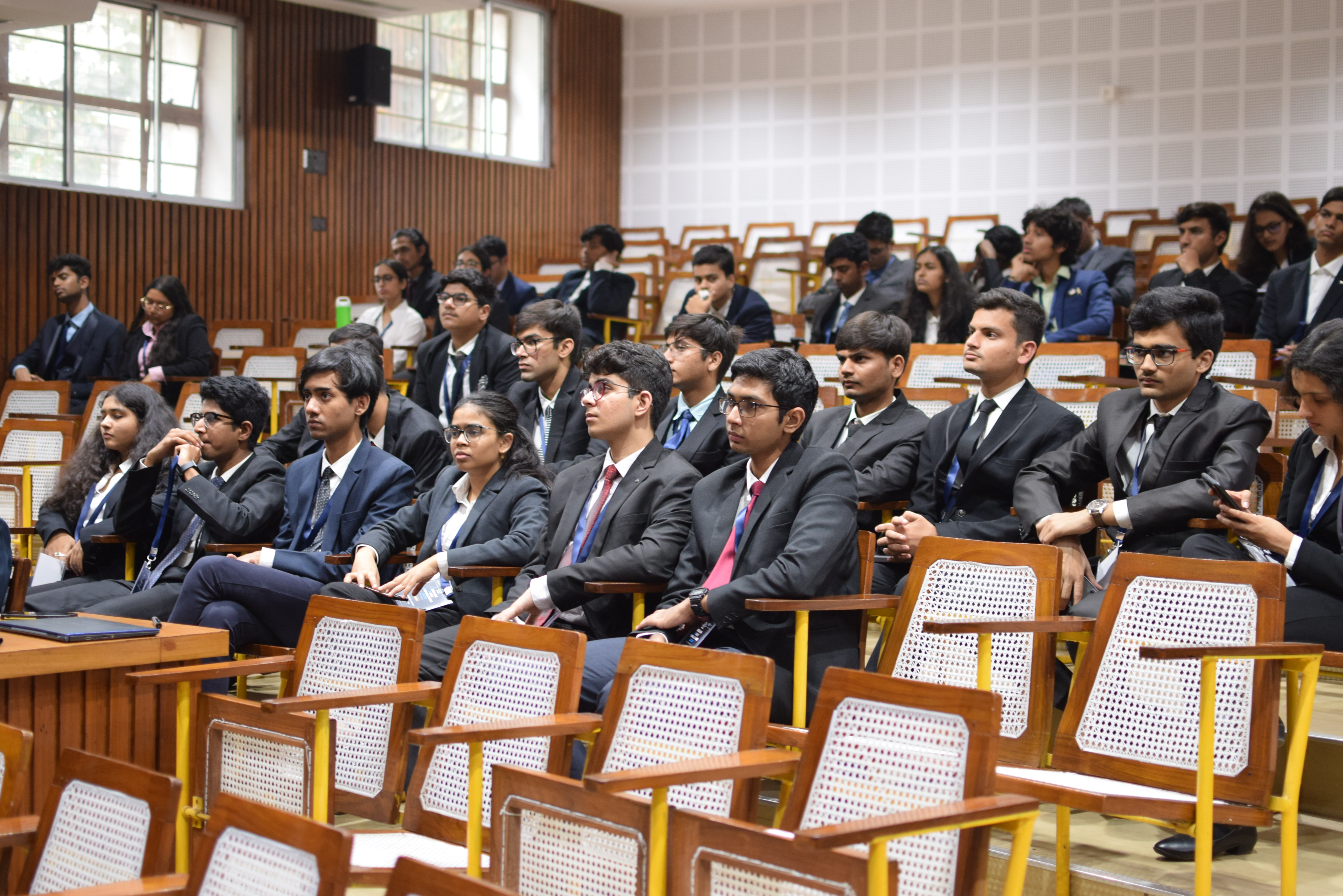
The event will be conducted in two stages Stage 1: Prelims The preliminary problem statement will be sent to the participating teams once they register on the portal. The dates for registrations will be declared soon. All participants must strictly abide by them. The result of the prelims will be communicated through email, and the final list of qualified teams will be announced through Business Club, IIT Kharagpur's social media pages, after which we shall move to Stage 2. The list of qualifying teams will be released through all of Business Club, IIT Kharagpur’s social media pages after which we shall move to Stage 2. --> Stage 2: Finals All the shortlisted teams shall receive the final case. The finalists would present their solution for the final case during Kshitij (Tentatively the third week of January), 2024. Under no circumstances will a modification of team members be permitted, once the preliminary solution is submitted.
Phone number, +91 8170825100, +91 9831843108, +91 9336719655, +91 8341605275, +91 9224378018, +91 7838014121, +91 9057281306, +91 9651526430, +91 8618695874, +91 8390813139, prior registration is mandatory for participation. each team must have at least 3 and at most 6 members. students from different colleges can be in the same team. both undergraduate and postgraduate students are allowed to participate. teams must mention the names of the members, their respective colleges and contact details on the first page of the report. plagiarism will not be tolerated. all decisions made by the judges and business club, iit kharagpur will be final and binding. each team must have at least 1 and at most 5 members students from different colleges can be in the same team. both undergraduate and postgraduate students are allowed to participate. teams must mention the names of the members, their respective colleges and contact details on the first page of the report. plagiarism will not be tolerated. all decisions made by the judges and business club, iit kharagpur will be final and binding. -->, modal header 3, the teams are first tested with a preliminary case over an online submission round. the shortlisted teams are invited to compete with each other on a real-world business case scenario in a gripping finale at iit kharagpur. an excellent amalgamation of business acumen, tough competition, exciting prizes topped with loads of interaction and fun activities, icc is arguably one of the best case study competitions in india. the teams are first tested with a preliminary case over an online submission round. the shortlisted teams are invited to compete with each other on a real-world business case scenario in a gripping finale at iit kharagpur. an excellent amalgamation of business acumen, tough competition, exciting prizes topped with loads of interaction and fun activities, icc is arguably one of the best case study competitions in india. the teams are first tested with a preliminary case over an online submission round. the shortlisted teams are invited to compete with each other on a real-world business case scenario in a gripping finale at iit kharagpur., modal header 4, b usiness club register, indian case challenge, 2024 business club, iit kharagpur now live.
The Indian Case Challenge is one of the largest case study competitions in India with a worldwide participation. The competition is organized by Business Club, IIT Kharagpur. The 12th Edition of ICC will be held in January in association with Kshitij, the annual Techno-management fest of IIT Kharagpur.
The Indian Case Challenge, hosted annually by Business Club, IIT Kharagpur, is India's Largest Business Case Competition. The 12th Edition of the ICC is brought to you in association with Kshitij, IIT Kharagpur
ICC 2024 will give you the opportunity to compete against the greatest business minds from across the world, along with huge cash prizes. The previous edition of ICC attracted over 5000 participants, including 43 international teams.
Registrations are open
Required field are marked with an asterisk (*) effort that has gone into your submissions to help Round 1 of ICC 2023 be a success. --> Stay tuned to our social media handles on LinkedIn , Instagram and Facebook for further updates. -->
Registration Successful !!
Give us your email so that you hear us first when we launch! It is a long established fact that a reader will be distracted by the readable content of a page when looking at its layout.
Executive Team
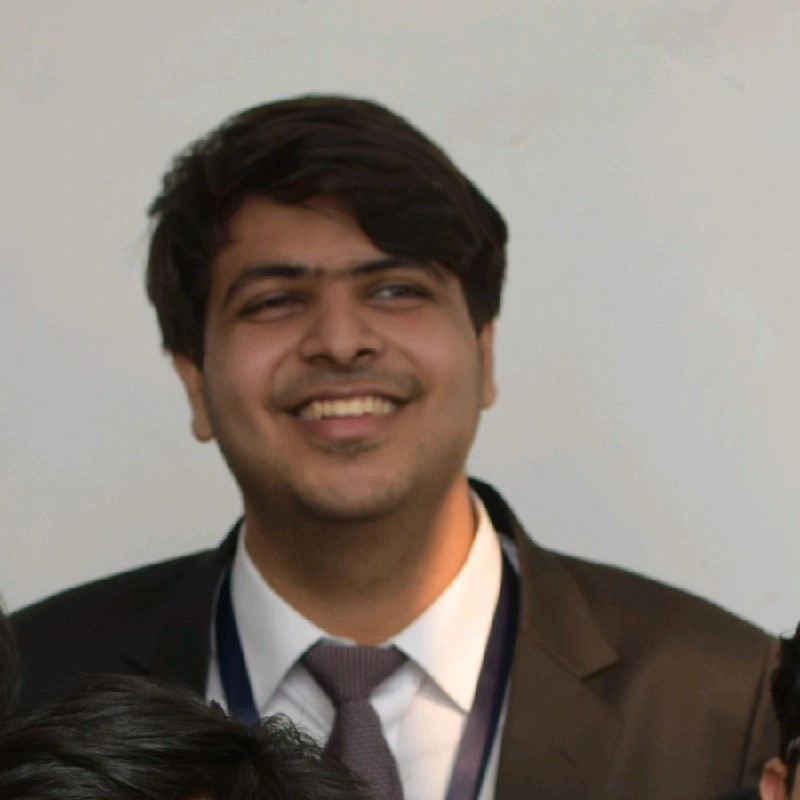
Siddharth Dikshit
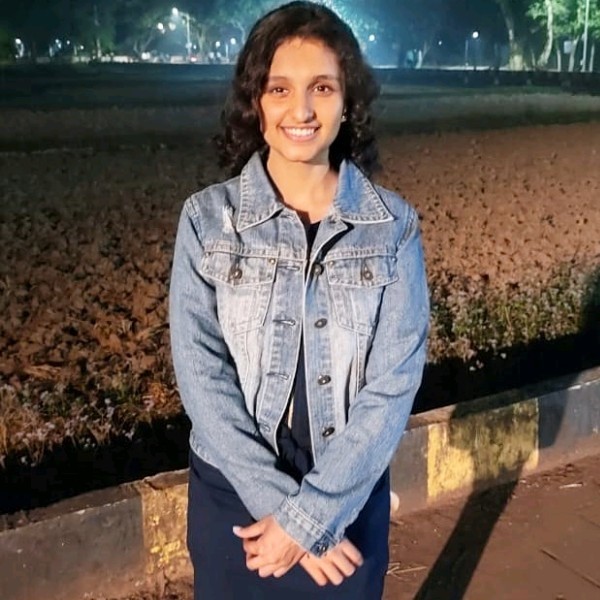
Shreeya Mishra

Adyan Rizvi
Head analytics.

Lokesh Tirthani

Ojasvi R Singh
Head finance.
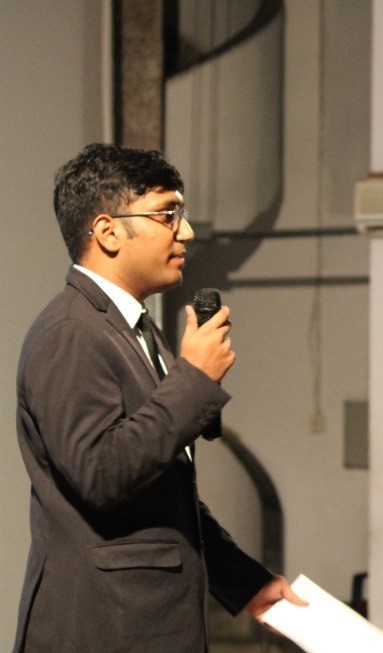
Suryaansh Jindal

Arya Vardhan Singh
Head strategy.

Atmajyoti Ghosh

Our Advisors
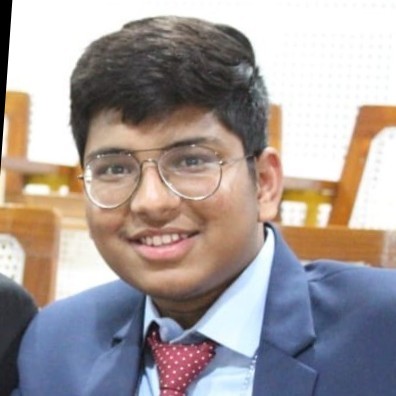
Arnav Bhutda
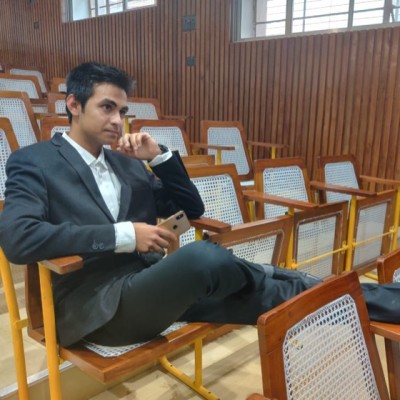
Arya Uttamchandani
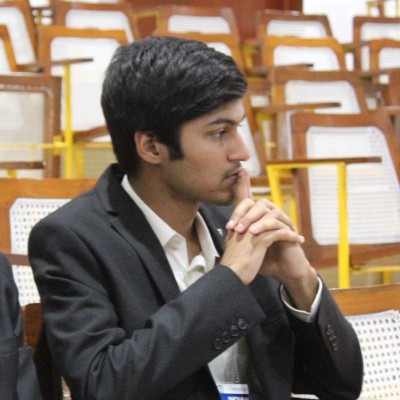
Karan Uppal

Kasis Lundia

Bharat Uday

Madiha Hanifa

Pragya Choudhary
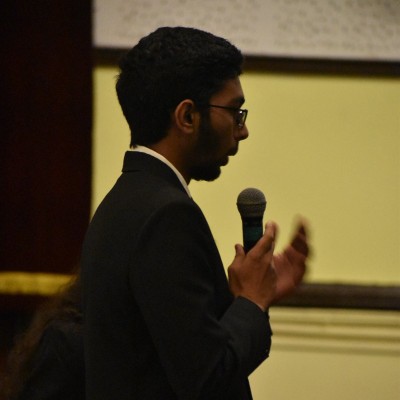
Ram Sundaram

Sai Kalyan Meghavath
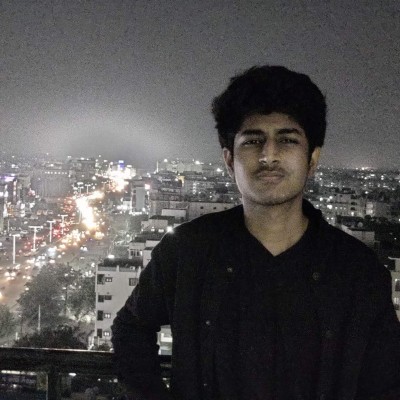
Siddharth Madupathi

Vaibhav Jalani

Some text in the Modal..
- IIT Kharagpur Events
Indian Case Challenge 2022
Indian Case Challenge 2022, IIT Kharagpur, India's Largest Case Study Competition, Kharagpur, West Bengal, 22nd December 2021 - 7th January 2022

About Event
Register at https://icc.bclub.co.in/ for the Indian Case Challenge 2022. The Indian Case Challenge hosted annually by Business Club, IIT Kharagpur, is India’s Largest Business Case Competition. The 10th Edition of the ICC is brought to you in association with Kshitij, Asia’s largest Techno-Management fest. ICC 2022 has prizes worth more than 1.5 Lakhs at stake. With the previous edition of ICC witnessing over 4000 outstation participants and teams from 9 international colleges, ICC 2022 is sure to provide you the opportunity to compete with the brightest business intellects across the globe. The event will be conducted in two stages Stage 1: Prelims • The preliminary problem statement will be sent to the participating teams once they register on the portal. • Registrations will be open from 16th December 2021 to 6th January 2022, 11:59 p.m IST. • The final deadline for the preliminary case submissions is 7th January 2022, 11:59 p.m. IST, and all participants must abide by it. • The list of qualifying teams will be released through all of Business Club, IIT Kharagpur’s social media pages after which we shall move to Stage 2. Stage 2: Finals • All the shortlisted teams shall receive the final case by email. • The finalists would be presenting their solution to the final case during Kshitij (18th -22nd January), 2022 via an online video conferencing platform. • Under no circumstances will a modification of team members be permitted, once the preliminary solution is submitted. Rules • Online registration is mandatory for participation. • Each team must have at least 3 and at most 5 members • Students from different colleges can be in the same team. • Both undergraduate and postgraduate students are allowed to participate. • Teams must mention the names of the members, their respective colleges and contact details on the first page of the report. • Plagiarism will not be tolerated. • All decisions made by the judges and Business Club, IIT Kharagpur will be final and binding.
Event Theme
Departments:.
Certificates will be provided to Participants
Related Links:
Featured events, international conference on advancements in science, engineering and management icasem 2024.
30th May 2024
Two Days Online Workshop on Python Programming with Industrial Perspective 2024
2nd Jun 2024
Arduino Robotics Workshop 2024
8th Jun 2024
International Conference on Inclusive Growth: Science, Sustainability, Engineering and Management Solutions ICISSEM 2024
Iot using python and raspberry pi workshop 2024.
9th Jun 2024
PCB Design Workshop 2024
Dot net workshop 2024.
22nd Jun 2024
Raspberry Pi with Node-red Workshop 2024
Web (website) development workshop 2024.
23rd Jun 2024
Python Programming Workshop 2024
Embedded system workshop 2024.
29th Jun 2024
IoT Workshop 2024
30th Jun 2024
Artificial Intelligence Workshop 2024

- Members Corner
- Students Corner

Search by page
- Management Education
- Testing & Assessment
- Knowledge Resources
- Media Centre
Contact Us ×

Fill below details to download the details


Event Details
Aima-icrc case writing competition, march 2021.
Overview AIMA- India Case Research Centre (ICRC) is pleased to announce the 1st edition of Case Writing Competition (ICRC -CWC). This competition aims to encourage and promote the development of high-quality India focused teaching case material that brings Indian ethos in managing the business. The business world has changed significantly in the past few years, particularly during the pandemic. The Case Writing Competition aims to capture the changing industry trends, technological changes, digital economy, sustainability, survival and several other market requirements in the form of teaching cases.
AIMA, the apex body of management in India, organises several summits and competitions every year. The Case Writing Competition (CWC) is a refreshing, stimulating and a learning journey for every case author/case writer. This journey is extremely rewarding in terms of competency/skill enhancement, exposure to industry and real problems and challenges faced by organisations, expert and peer review on authored cases, mentoring & publication opportunities and finally the chance to win the competition. AIMA – India Case Research Centre is actively supported by industry and academia. Some of the top industry leaders are on its advisory board, and ICRC also enjoys rich academic support from eminent faculty from institutions across the world. ICRC has published several teaching case studies and Industry best practices cases developed in ICRC banner, apart from a collection of India centric case studies from collaborating institutions like IIMB, ISB and several others. ICRC is a growing case collection repository. All cases submitted in this case writing competition will be considered for publication in ICRC.


National Case Study Competition
20th january - 27th january '24 , national celebration of academic and intellectual accomplishment, as guided by nep 2020..

Asia's First High-School Student Case Competition

"The power of education extends beyond the development of skills we need for economic success. It can contribute to nation-building and reconciliation."
-Nelson Mandela

National Case Study Competition
The National Case Study competition presented by ICG, Powered by Tads Education is one of the most upcoming case study competitions. We aim to bring together students of all courses throughout India and Nepal and offer them fantastic opportunities: to meet like minded students, leading schools and renowned guests. For the First edition of the competition , all participants will have the opportunity to network with the top schools of India and Nepal . The competition is a unique opportunity connecting smartest academics from around the country. A case study is an in-depth investigation and evaluation of a particular topic, circumstance, or person within a predetermined amount of time. It entails conducting in-depth study and analysis on a certain case or situation in order to comprehend its intricacies, difficulties, solutions, and results. Teams or individuals analyze a real or imaginary business scenario or challenge within a particular sector or field as part of a national case study competition. The participants have to give a panel of judges their analysis, suggestions, and solutions in a condensed amount of time.

IIT Kanpur Consulting Group
Established in 2018, IIT Kanpur Consulting Group is driven by the vision of using data science and case solving skills to help organizations leverage better insights from their data and thereby create a strong social impact. The group aims at leveraging the power of data science and Machine Learning to address societal issues. It also helps to explore the world of consulting with an aim to create a positive social impact.

100+ Schools
800+ students.
Our competition offers valuable rewards and recognition to the winners, including prestigious scholarships, cash prizes, and certificates endorsed by IIT Kanpur Consulting Group. These prizes aim to foster learning, academic growth, and professional development among our participants.
Download the Unstop app now!
Check out the latest opportunities just for you!

Case Study Competition 2021 AAKAAR, IIT Bombay
Indian institute of technology (iit), bombay, refer & win.
MacBook, iPhone, Apple Watch, Cash and more!
Share this Competition now
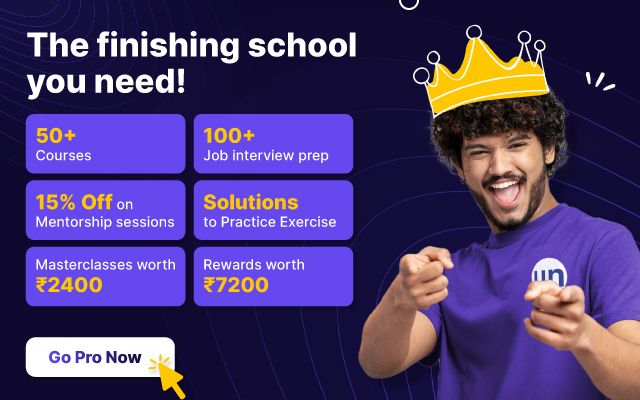
- Dates & Deadlines
- FAQs & Discussions
All that you need to know about Case Study Competition 2021
Aakaar, IIT Bombay is proud to launch the “ Case Study Competition 2021 ”. Case studies provide an effective platform to educate tomorrow’s civil engineers with expertise and accomplish a desired aim of practice engineering. This offers good opportunities and a new source of interest to the students by creating a learning environment where students learn a sense of worth and accomplishment.
Problem Statements:
Case studies illustrate the past and present problems in their real context. Students will learn various ways to solve problems continuing in different subfields of Civil Engineering using their innovative ideas.
The case study can be an effective tool that brings the classroom theories into practice. In this edition of the Case Study Competition, you can choose to present the solution to any of the following Five Cases:
- Arrival of Autonomous Vehicles in India
- CoviSpatial, Geolocation and the Pandemic
- Damage Assessment of RC Deck slab
- Demolition Management
- Water-Food-Energy Nexus
Visit the website for the Problem Statements!
Civil Engineering has a vast scope for research and innovation. It has been in existence since BC times. Civil engineering practices involve multitasking where there is a high probability of challenges. We need to have solutions to overcome the challenges to create a better world. We encourage everyone to participate in the symposium and present their work.
Key Incentives:
- Participation Certificates to every participant and Prizes worth INR 15k to the top performers
- Presentation of work of the top performers in Aakaar magazine
- Review by eminent professionals and exposure to the diverse challenges in Civil Engineering
Our Motive:
- To encourage participation in the civil engineering research area
- To provide an excellent platform for the exchange of new ideas and knowledge among Academia, Industry professionals, and Research Scholars
- To give students exposure to working on some of the real-world contexts and presenting them in a formal conference
How to Register?
- Register as a team with a maximum of 3 members.
- You’ll have to submit a Case Study Analysis when specified.
- Finalists will be asked to present their solution in Aakaar 2021.
- The symposium will be held online through video conferencing this year.
Registration Rules:
- The team should consist of a maximum of three members and no team member should present in more than one group.
- Registration starts online on 5th Feb 2021, and the deadline to register is March 5th, 2021.
- Submission Deadline: March 10th, 2021
- Details for the submission would be conveyed to registered participants through email.
- Visitors (who are not presenting but just wish to attend and learn) can register by filling the Attendee form. There is no fee for visitors.
For queries and clarifications, drop an email at [email protected]
What are the important dates & deadlines?
- Registration Deadline 14 Mar 21, 06:30 PM CUT
Contact us Form
Rewards and Prizes
Prizes worth.

Participation Certificate
Featured opportunities.
Similar Opportunities
Related opportunities, voice your opinion by leaving a feedback & your rating, frequently asked questions (faqs) and discussions..

P&G CEO Challenge India 2021-2022
Instructions
Welcome to the P&G CEO Challenge 2021-2022. The P&G CEO Challenge is a one-of-its-kind Case Study Challenge that is designed to test your problem-solving skills while dealing with critical business situations. The CEO Challenge cases are designed to give you a flavour of the everyday business decisions you will get to take as the Leader of a Global Brand like Pantene, Oral-B, Ariel, Gillette etc.
This year, you will explore the fabulous history of Oral Care and learn about the various innovations in this category!
Basic Guidelines
Your team must have 3 members. Teams that are smaller or larger will not be considered.
Please be prepared to provide your email address while registering. We encourage diversity in all its forms for successful teams.
Eligibility
All eligible students will receive communication from your respective Placement Committees via E-Mail.
We at P&G hold strong to our Purpose, Values, and Principles. Among those values are integrity and trust. We expect all participants to uphold the highest standards of integrity and trustworthiness as they prepare themselves and compete in all portions of the competition.
If there is ever any situation where a violation of these values occurs by even a single member of the team, or if a violation of these values seems to have happened, P&G reserves the right to eliminate the entire team from the competition without any question.
Case Challenge
The Online Case Study this year has been designed around a real-time Problem Statement based on the P&G brand Oral-B, and will test your skills across Marketing, Sales, Finance, Consumer Market Knowledge and Operations.
The Case Study consists of 16 Multiple Choice Questions which will have to be attempted by the team within 60 minutes.
All information provided in the case study is used for test purposes only and may not be an accurate representation of reality. The facts, data, opinions, characters, company names, etc. were created for the use of this case study only. Any resemblance to actual persons or companies is coincidental.
This user registration form is for the India case study only. Visit http://www.pg-ceochallenge.com/ to view and access other regions.
Please whitelist mindsumo.com in your email client to make sure all communications get delivered to your inbox.
This user login form is for the India case study only. Visit http://www.pg-ceochallenge.com/ to view and access other regions.
This password form is for the India case study only. Visit http://www.pg-ceochallenge.com/ to view and access other regions.

SIDDHARTH BHATTBATT


- Global Ambassador
CBS CASE COMPETITION
Porcelænshaven 24B, 2000 Frederiksberg
Contact Email
- About Amazon (English)
- About Amazon (日本語)
- About Amazon (Francais)
- About Amazon (Deutsch)
- About Amazon (Italiano)
- About Amazon (Polskie)
- About Amazon (Espanol)
- About Amazon (Español)
- About Amazon (Français)
- About Amazon (Português)
B-school students 'ACE' the 2021 customer excellence challenge
- WhatsApp Share
- Facebook Share
- Twitter Share
- Email Share
- LinkedIn Share
- Copy Link copied

The Amazon Customer Excellence (ACE) Challenge 2020 was ranked number 1 in the Dare2 Compete Most Prestigious B-School Competitions 2021, among India’s top 10 premier B-school category. The ACE challenge was first launched in 2011 as part of Amazon’s vision to attract the country’s best talent, encourage innovation, give B-School students a first-hand experience of Amazon’s peculiar culture and identify the business leaders of tomorrow.
The ACE Challenge 2021
Launched virtually on August 2nd 2021 via a leadership fireside chat featuring Amazon business leaders including Puneesh Kumar, Aparna Purohit and Siddharth Nambiar, the event was attended by 4,300 MBA students across India, along with the 2020 finalists who shared their insights about their competition journey, as well as tips and tricks to succeed in the competition. The event was attended live by 1,600 students across campuses while 6,200 viewed the recorded event online. The case for ACE 2021 was titled “Driving Indian Agriculture Forward” written by Sumit Saxena, via a ‘Write Like an Amazonian’ workshop led by Rajdeep Datta.
The winning team “Goal Diggers” was from Indian Institute the Management, Lucknow, the 1st Runner Up was Team Dirk from the Indian School of Business (ISB) and the 2nd Runner Up was Team SNCS from SP Jain, Mumbai. Says finale jury member, Puneesh Kumar, Country leader for Alexa, Amazon India, The ACE Challenge is a great way to engage 15,000+ brightest minds across the country to tackle real life problems and come up with innovative business solutions. It was heartening and inspiring to see India's future leaders innovate, strategize and build for tomorrow.”
Suman Yadav, Head of Student Programs, APAC and Japan, said, “The ACE Challenge provides MBA students with a unique opportunity to not only participate in a business case study competition, but also a valuable learning experience, solving real life problems, the Amazon way.”
Attracting the best minds
Participating in Amazon ACE challenge was a wonderful experience
Students from top colleges feel that they are lucky to have experienced the ACE journey this year. Says Aastha Maskara, ISB, “Participating in Amazon ACE challenge was a wonderful experience. Working to solve a real-world problem while keeping specific needs of the business in mind helped me put classroom learning into action. Moreover, getting real-time feedback from the panel was very beneficial in bolstering my learning from the event.”
Solving real world problems
This is an exceptional opportunity to participate in brainstorming and solving for very “real world” problems
The ACE Challenge has witnessed unprecedented growth and popularity in the last few years as provides B-school students a practical learning experience and allows them to get their hands dirty, solving a real world problems, the Amazon way. Vaishali Kasture, Head of Enterprise Segment, AWS and jury member of last year’s challenge says, “This is an exceptional opportunity to participate in brainstorming and solving for very “ real world ” problems. The candidates get the opportunity to study an Amazon business case and solve for customer centric problems.”
The Amazon ACE journey has been a steep learning curve for our team.
Speaking about their case which was pivoted around the agricultural sector and pain points of the Indian farmer, Team SNCS, SPJIMR, Mumbai, said that developing a strategy that is built customer backwards was the key. Explaining in detail, they said, “The Amazon ACE journey has been a steep learning curve for our team. Our case introduced us to a gold mine of business opportunities in the agricultural sector and gave us a chance to interact, understand the underlying pain points of the Indian farmer. Through the workshops and mentorship sessions, we got familiar with the doc-writing style at Amazon and also interacted with several senior leaders. This gave us a brief insight into how great ideas are brought to life at earth’s most customer-centric company!”
Enriching learning experience
We were solving a vital problem statement in agriculture and have had many key takeaways from our research phases
“Phase I of ACE 2021 has been a wonderful and enriching learning experience. We were solving a vital problem statement in agriculture and have had many key takeaways from our research phases. The problem statement brought in a whole new dimension. We would like to thank the judges for the feedback from round 1 and our mentor and buddy from Amazon for being immensely helpful and very approachable. We are eagerly looking forward to furthering proceedings in Phase II of ACE 2021 and are grateful for this extremely rewarding experience,” said Team NDA, the National Finalists, from IIM Bangalore.
Road to the finals
130 teams comprising four MBA students each, participated in the ACE Campus rounds which concluded on August 30 th 2021 across 12 investment MBA campuses and 1 wild card campus round, judged by 45 Amazonians. 52 campus round winners competed for the coveted title of the National Winner at the ACE 2021 Finale.
The winning experience
It is not just about winning the competition, but about making a difference
Sharing their excitement at winning the Challenge, Team Goal Diggers from IIM Lucknow, said, “It has been an astounding journey so far, learning so much about the farmer input industry. The process of directly connecting with farmers from across the country, understanding their daily problems, and building a solution for them, has been immensely satisfying. Now, it is not just about winning the competition, but about making a difference."
Rewards and opportunities
The campus round jury identified top three teams on each of the campuses and the winner, first and second runners up from each campus. The top three teams from each campus will receive a pre-placement interview for MBA roles at Amazon. On Sep 10th 2021, the ACE 2021 Finale jury comprising Puneesh Kumar, Sandeep Thangiah, Suman Yadav, VG Sundar and Sumit Saxena identified national winners who will receive cash awards worth INR 2,00,000. The first-runner-up will receive cash awards worth INR 1,50,000, and the second-runner up will win INR 50,000.
Amazoned and how
When I try to sum up my experience at Amazon, I fall short of words. So I created this one word that speaks in itself: ‘Amazoned’
Recalling his experience at the 2020 ACE Challenge, Manavdeep Grover, PPO Holder and ACE PPI holder, now Amazon Future Builder Program (AFBP) Operations Manager at Amazon, says, “When I try to sum up my experience at Amazon, I fall short of words. So I created this one word that speaks in itself: ‘ Amazoned ’. ACE was a launch pad for my post-MBA career as it helped me get closer to Amazon’s peculiar culture, the leadership and innovate on behalf of the customers. The experiences across summer internship, Amazon ACE and then being a part of the first AFBP cohort are now proving pivotal in developing the leadership mind-set and stay customer obsessed.

Cultivating future leaders with the Amazon Future Builders Program

Amazon India's Machine Learning Summer School is coming this July

How Amazon is fuelling Noorjahan's education and entrepreneurial ambitions
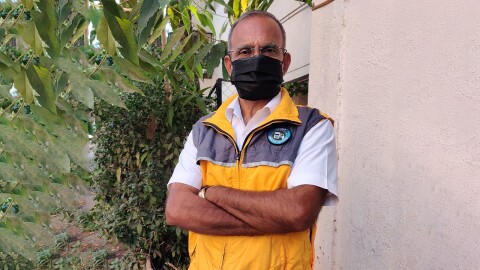
Here’s how Amazon Flex became the light at the end of the tunnel for Pritamdas

This Amazon Flex partner delivers smiles while building a bright future
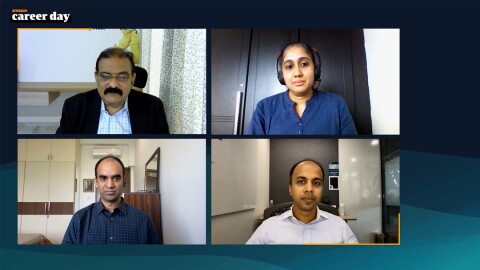
ML, voice, and cloud - exploring the cutting edge technologies that power Amazon

Amazon successfully wraps up its first Career Day in India; more than 400,000 people apply for jobs

59% of Indian professionals actively looking for new jobs: Amazon Job Seeker Insights survey

Amazon to host its first-ever Career Day in India on September 16

Information For
- Member login

Special Offer extended: 40% off CMA entrance Update on remote testing
Student Case Competition 2021
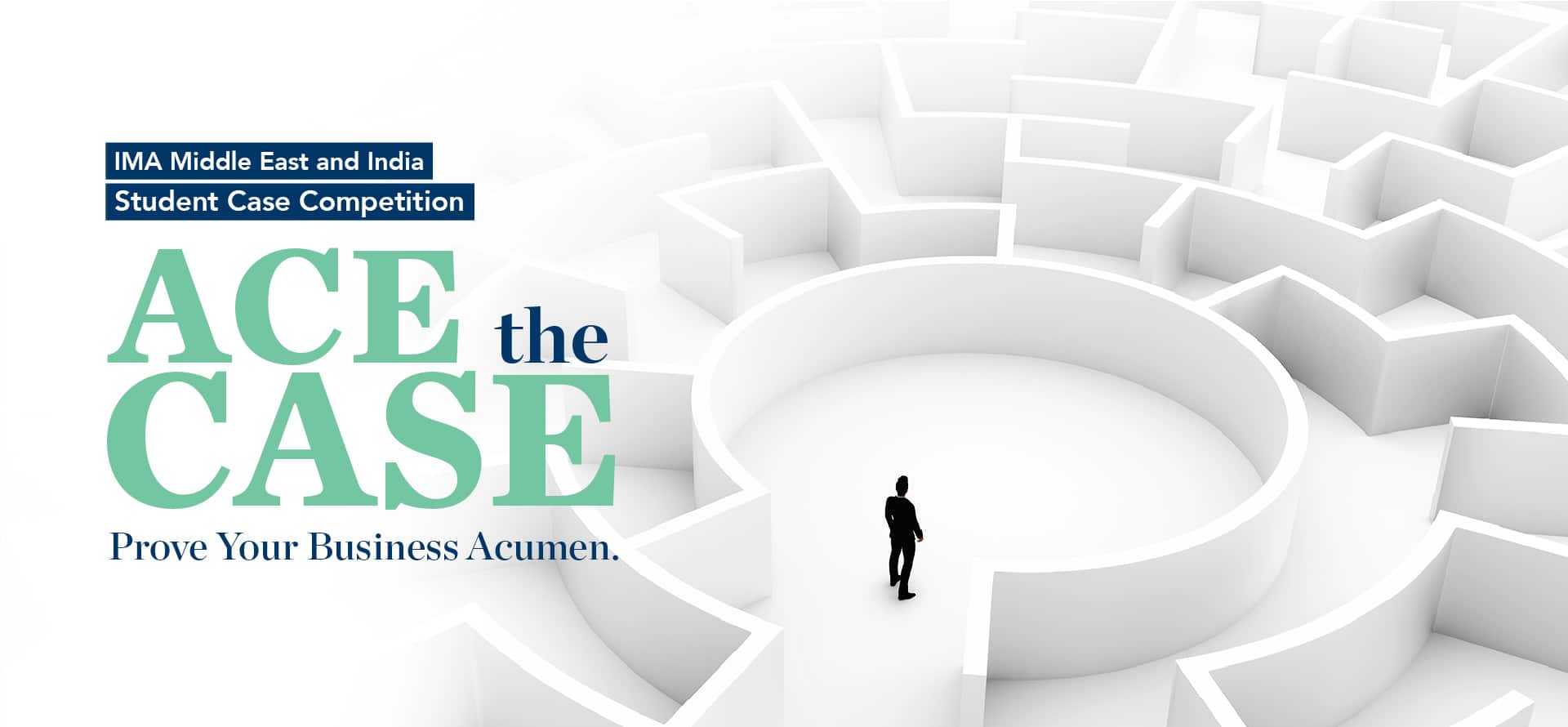
Solve the business case on
“SHOULD STAR TEXTILES CUT OUT THE INTERMEDIARIES?”
Submission deadline: january 31, 2021, a challenge for the brightest minds.
Are you ready for the challenge? This globally popular IMA® (Institute of Management Accountants) Middle East and India Student Case Competition invites university students to think strategically and stretch their analytical skills to solve a business case on “Should Star Textiles Cut Out The Intermediaries?” Put your business acumen to the test and present your team’s analysis in front of leading business heads. This year’s case gives you and your team the chance to get selected for the Grand Finals, where you will compete with peers from around the world.
DOWNLOAD THE CASE HERE
What you need to do. Get started early!
Form a team of 3–5 members
Present your best strategic analysis to solve the case
Submit your case for a chance to win great prizes
Who can apply?
What you could win.
Four teams will be selected for the finals: top two teams from the Middle East and Africa, and top two teams from India. The winning team from the finals will go on to present at the Grand Finals challenge against other regions.
- A $500 Amazon gift voucher will be awarded to each team member.
- Connection with a mentor in a local chapter.
- Opportunity to engage in a virtual conversation with Jeff Thomson, CMA, CSCA, CAE, IMA President and CEO.
- Winning team will win an all-expense paid trip to Dubai, UAE, to present your winning case during the Grand Final challenge against winning teams from Europe and Southeast Asia.
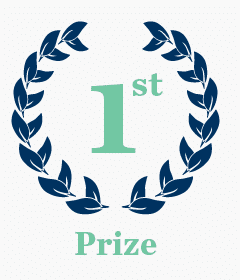
- A $250 Amazon gift voucher will be awarded to each team member.
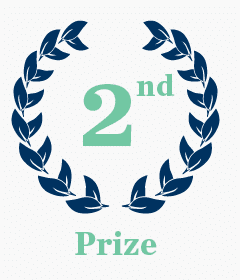
- A $150 Amazon gift voucher will be awarded to each team member.
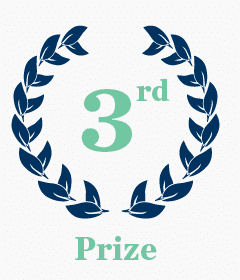
Click here to submit your case on or before January 31, 2020 Read the Case Competition Terms and Conditions here . Submission Deadline: January 31, 2021
DOWNLOAD CASE STUDY
What is the cma certification.
The CMA equips you with all the skills you’ll need to make a difference at your company and in your career. This globally recognized certification proves your mastery of the 12 most critical practice areas in management accounting, including:
- Planning and Analysis
- Technology and Analytics
- Performance Management
- Risk Management and Internal Controls

Get hired as a CMA
Earning the CMA certificate proves your ability to make valuable contributions in accounting and finance. These abilities in strategic thinking, decision making, financial analysis, technology, and business ethics help you advance your career.
To know more about the CMA certification, Click Here
Platinum sponsors.

Gold Sponsors
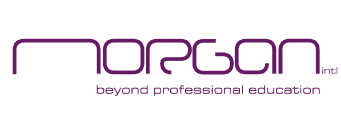
HOCK international
HOCK international was founded in 2000 by Brian Hock. HOCK's mission is to help busy professionals overcome self-doubt and master the large exam syllabus. HOCK offers:
- Complete and affordable materials
- Unlimited teacher, administrative, and technical support
- A step-by-step study plan called PassMap
- A payment plan with no interest that is available worldwide
- The industry’s only “You Pass or We Pay” Guarantee
HOCK has been helping candidates to pass their CMA exams with confidence and advance their careers for more than 20 years.
Brian Hock, CMA, CIA, is the original author of the HOCK materials and is actively involved in HOCK's operations. Besides maintaining the HOCK materials library, he also teaches classes, answers students' questions, and meets with the students for extra support, motivation, and mentorship.
"Through teaching students from around the world, I have learned that providing excellent materials and explaining the exam concepts with clarity and understanding is not always enough to pass the exams. Busy schedules, a lack of experience, education gaps, English being a second language, not being motivated enough, financial issues, and self-doubt are all common obstacles, fears and concerns that students need to overcome. And this is in addition to mastering the challenging exam syllabus. At HOCK, we prepare students for the exams by helping candidates address all of these aspects of the study process. We provide a study plan, motivation, value-based prices, a payment plan, English subtitles on our videos, detailed explanations in our question bank, and materials and classroom videos that cover everything you need to pass the exams with confidence. Preparing you to confidently pass your exams is my job, and the focus of the entire HOCK team." - Brian Hock
Website : https://www.hockinternational.com/cma-exam/
For over 200 years Wiley has been helping people and organizations develop the skills and knowledge they need to succeed. Specifically, Wiley Accounting builds the professional and technical skills students need to be competitive in today’s job market. Our courses deliver the fundamentals, as well as the hard and soft skills needed in today’s industry. From test prep courses to upskilling, our personalized career tools help you grow no matter where you are on your career path.
Ready to explore what IMA has to offer?
Learn how IMA provides you with the tools and resources you need to navigate today's business environment.

University Partners
- International Relations Center
- Global Talent Portal
- Industry Interface
- Students Corner
- Learning Centre (LC)
- Virtual Tour
- Key Contacts
- Alumni Portal

A Decrease font size. A Reset font size. A Increase font size.
- MDP Calendar
- General Management Programme for Executives (GMPE)
- Rural Engagement Programme (REP)
- Himalayan Outbound Programme
- Industry Interface Programme for PGP Students
- Social Sensitivity at IIMI
- IIM Indore Videos
- SIG – Special Interest Groups
IIM Indore Team Becomes the Global Winner for IMA Student Case Competition
- Competing with over 105 universities from 4 regions of the world, the IIMI team emerges as the Global Winner
- The team won all the previous rounds in online mode, from different cities
Bringing laurels to the Indian Institute of Management Indore (IIM Indore), a five-participant team of IIMI participants has emerged as the Global Winner of the Institute of Management Accountant (IMA) Student Case Challenge 2022. The team comprising Aveek Choudhury, Ishan Anshul, Prikshit Saini, Rishu Raj, and Samriddhi Choudhury won the finals, competing with over 105 universities throughout the event. The universities were from four global regions – India, South East Asia, Middle East & Africa, and Europe.
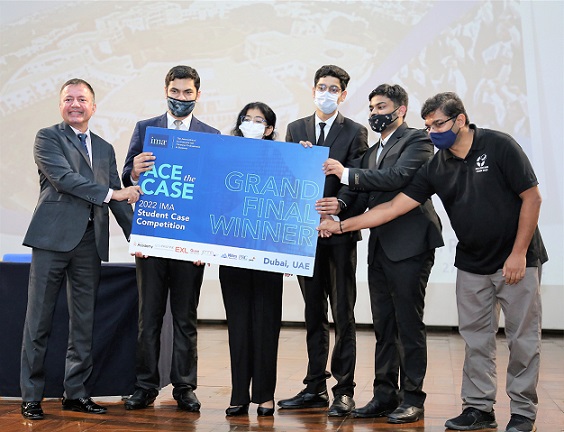
Prof. Himanshu Rai, Director, IIM Indore, congratulated the winning team for their outstanding achievement. ‘I heartily congratulate the winning team on this occasion. IIM Indore is always eager to offer opportunities, mentor, and encourage its participants for whatever they wish to achieve. The team has made us proud, and I wish them all the best for their future endeavors’, he said.
The members of the team noted that throughout the competition, they were in different cities as they had their internships. While Aveek was in Guwahati, Ishan was in Patna. Prikshit, Rishu, and Samriddhi were in Chandigarh, Agra, and Delhi, respectively. The team prepared for and won all the previous rounds in online mode. They prepared for the international round in online mode as well, and came together for the first time during the finals only. Sharing information about the various rounds of the competition, the team said that India was divided into three regions, and two teams were shortlisted from every region. These six teams competed in the semi-finals, the national round, and the IIM Indore team won the nationals. After that, the team represented India in the finals in Dubai.
The case was based on a Singapore-based indoor sports & recreational facility named Cage. The case revolved around improving the efficiency & profitability of the venture. Cage faced issues like low female participation, low retention rates, and inefficient capacity utilization at specific locations. ‘We based our solution on digitization, marketing campaigns to target female customers, and developing loyalty programs. The solutions were backed by robust cost accounting, financial accounting, and time value of money analysis. We also looked at developing incentive programs for the General Managers to incentivize them to perform better’, said the team.
IIM Indore congratulates the winning team for their accomplishment.
- « New Batch of PGP, PGP-HRM, FPM, and IPM-4th Year Begins at IIM Indore
- Sound Garden Inaugurated at IIM Indore »
- Past Presidents
- Past Presidents Interviews
- Aidan Connolly
- Young Board of Directors
- Regional Board of Advisors
- Payments & Donations
- Fellows | Distinguished Service | Life Members
- Membership Benefits
- Membership Levels
- IFAMA Europe
- IFAMA 2024 Conference Overview
- IFAMA 2024 Speakers
- Day 1 Monday
- Day 2 Tuesday
- Day 3 Wednesday
- Day 4 Thursday
- Plan your trip to Almería
- 2024 Symposium
- 2024 Student Case Competition
- Post-Conference Agri-Tours
- 2024 Women in Agribusiness Award
- 2023 Conference Schedule
- Costa Rica 2022 Forum Schedule
- Costa Rica 2022 Speakers
- Costa Rica 2022 Sponsors
- MONDAY | 21 JUNE
- TUESDAY | 22 JUNE
- WEDNESDAY | 23 JUNE
- THURSDAY | 24 JUNE
- FRIDAY | 25 JUNE
- 2020 Rotterdam Highlights
- 2020 Essay Competition Winners
- 2019-Hangzhou
- 2018-Buenos Aires
- 2017 Miami Symposium
- 2017-SCC-Winners
- 2016-SCC-Winners
- 2015-Symposium
- 2014-Symposium
- 2013-Atlanta-Symposium
- 2012-Symposium
- 2011-Frankfurt
- 2010-Boston
- 2009-Symposium
- 2008-Monterey
- 2006-Buenos-Aires
- 2005-Chicago
- 2004-Montreux
- 2003-Cancun
- 2002-Netherlands
- 2001-Sydney
- 2000-Chicago
- 1999-Florence
- 1998-Punta-del-Este
- 1997-Jakarta
- 1996-Cancun
- 1994-Caracas
- 1993-San-Francisco
- 1992-Oxford
- 1991-Boston
- Call for Papers European Digitainability
- Call for Papers ESG
- IFAMR Editorial Staff
- Volume 27 Issue 1
- Volume 26 Issue 5
- Volume 26 Issue 4
- Volume 26 Issue 3
- Volume 26 Issue 2
- Volume 26 Issue 1
- Volume 25 Issue 5
- Volume 25 Issue 4
- Volume 25 Issue 3
- Volume 25 Issue 2
- Volume 25 Issue 1
- Volume 24 Issue 6
- Volume 24 Issue 5
- Volume 24 Issue 4
- Volume 24 Issue 3
- Volume 24 Issue 2
- Volume 24 Issue 1
- Volume 23 Issue 5
- Volume 23 Issue 4
- Volume 23 Issue 3
- Volume 23 Issue 2
- Volume 23 Issue 1
- Volume 22 Issue 5
- Volume 22 Issue 4
- Volume 22 Issue 3
- Volume 22 Issue 2
- Volume 22 Issue 1
- Volume 21 Issue 3
- Volume 21 Issue 2
- Volume 21 Issue 1
- Volume 20 Issue 5
- Volume 20 Issue 4
- Volume 20 Issue 3
- Volume 20 Issue 2
- Volume 20 Issue 1
- Volume 19 Issue B
- Volume 19 Issue A
- Volume 19 Issue 4
- Volume 19 Issue 3
- Volume 19 Issue 2
- Volume 19 Issue 1
- Volume 18 Issue 4
- Volume 18 Issue 3
- Volume 18 Issue 2
- Volume 18 Issue 1
- Volume 18 Issue A
- Volume 17 Issue 4
- Volume 17 Issue 3
- Volume 17 Issue 2
- Volume 17 Issue 1
- Volume 17 Issue B
- Volume 17 Issue A
- Volume 16 Issue 4
- Volume 16 Issue 3
- Volume 16 Issue 2
- Volume 16 Issue 1
- Volume 16 Issue A
- Volume 15 Issue 4
- Volume 15 Issue 3
- Volume 15 Issue 2
- Volume 15 Issue 1
- Volume 15 Issue B
- Volume 15 Issue A
- Volume 14 Issue 5
- Volume 14 Issue 4
- Volume 14 Issue 3
- Volume 14 Issue 2
- Volume 14 Issue 1
- Volume 13 Issue 4
- Volume 13 Issue 3
- Volume 13 Issue 2
- Volume 13 Issue 1
- Volume 12 Issue 4
- Volume 12 Issue 3
- Volume 12 Issue 2
- Volume 12 Issue 1
- Volume 11 Issue 4
- Volume 11 Issue 3
- Volume 11 Issue 2
- Volume 11 Issue 1
- Volume 10 Issue 4
- Volume 10 Issue 3
- Volume 10 Issue 2
- Volume 10 Issue 1
- Volume 9 Issue 4
- Volume 9 Issue 3
- Volume 9 Issue 2
- Volume 9 Issue 1
- Volume 8 Issue 4
- Volume 8 Issue 3
- Volume 8 Issue 2
- Volume 8 Issue 1
- Volume 7 Issue 4
- Volume 7 Issue 3
- Volume 7 Issue 2
- Volume 7 Issue 1
- Volume 6 Issue 4
- Volume 6 Issue 3
- Volume 6 Issue 2
- Volume 6 Issue 1
- Volume 5 Issue 4
- Volume 5 Issue 3
- Volume 5 Issue 2
- Volume 5 Issue 1
- Volume 4 Issue 4
- Volume 4 Issue 3
- Volume 4 Issue 2
- Volume 4 Issue 1
- Volume 3 Issue 4
- Volume 3 Issue 3
- Volume 3 Issue 2
- Volume 3 Issue 1
- Volume 2 Issues 3-4
- Volume 2 Issue 2
- Volume 2 Issue 1
- Volume 1 Issue 4
- Volume 1 Issue 3
- Volume 1 Issue 2
- Volume 1 Issue 1
- Case Study Library
- IFAMR Top 10 Publishing Secrets
- Case Study Essentials
- Submission Portal
- Article Reprint Policy and Request Form
- Reviewing Reviewers Scientific Enterprise
- Food Matters Agri-Podcast
- Young Board Discussion Series
- IFAMA Newsletter
- IFAMA Young Board
- Student Case Winners 2023
- Student Case Winners 2022
- Student Case Winners 2020-2021
- Student Case Winners 2006-2019
- Rising Star Winners
- Volunteer Opportunities
- Alabama A&M Univ
- Alcorn State Univ
- Arizona State Univ
- Auburn Univ
- Cal Poly Univ Pomona
- CalPoly Univ San Luis Obispo
- California State Univ Fresno
- CMAAE Africa
- Colorado State Univ
- Cornell University
- Essec Business School
- Harven Agribusiness School
- The Hebrew University of Jerusalem
- Illinois State Univ
- Indian Institute of Management Lucknow
- Instituto Internacional San Telmo
- Iowa State University
- Kansas State University
- Louisana State University
- Massey University
- Michigan State University
- Mississippi State University
- Montana State University
- Newcastle University
- New Mexico State University
- Northwest Missouri State University
- North Carolina A&T State University
- North Carolina State University
- North Dakota State University
- Ohio State University
- Oklahoma State University
- Olds College
- Oregon State University
- Pennsylvania State University
- Purdue University
- The Royal Agricultural University
- Rutgers University
- Santa Clara University
- South Dakota State University
- Southern Illinois University
- Stellenbosch University
- Texas A&M University
- Texas Tech University
- Universidad-de-Lasalle
- Universidad-del-Cema
- University Adelaide
- University of Alberta
- University of Arkansas
- University of British Columbia
- University-Buenos-Aires
- University of California
- University of Connecticut
- University of Delaware
- University of Florida
- University of Georgia
- University of Guelph
- University of Idaho
- University of Illinois
- University of Manitoba
- University-Melbourne
- University of Minnesota
- University of Missouri
- University of Nebraska
- University of New England
- Universidad ORT
- University of Queensland
- University of Reading
- University of Saskatchewan
- Universidad de Sao Paulo
- Universitas Terbuka Indonesia
- Job Opportunities
- 2023 Student Case Competition Preparation
- IFAMA 2021 Special Sessions - Day 1
- IFAMA 2021 Special Sessions - Day 3
- IFAMA 2021 Special Sessions - Day 4
- IFAMA 2020 Special Sessions
- IFAMA 2020 Educational Sessions
IFAMA'S GLOBAL STUDENT CASE COMPETITION

4th Case Competition and Conference
Academic rigor and student engagements, advance research methods, capacity building workshop on case teaching & writing, curriculum development: designing futuristic courses, art and science of writing case studies on developing technologies, faculty development programme on case teaching & case writing in hybrid mode, 2nd aima-icrc case writing competition & conference, 2022, aima & aicte present capability building workshop on case teaching & writing, january 2022, aicte sponsored national conference on catalysing change and innovation in women entreleadership - india perspectives |29th - 30th november 2021, 2nd international conference on the role of innovation, entrepreneurship and management for sustainable development, isdsi-global 2021 conference (online), aima & aicte present case teaching & writing online workshop | 03rd -10th july 2021, aima-icrc case writing competition, march 2021, aima & aicte present case teaching & writing online workshop (with a focus on developing cases based on indian ethos) on 12, 18, 19 & 20 december 2020, customised case writing workshop for gail, aima & aicte present online workshop on case teaching & writing, june-july 2020, a report on aima (icrc) & aicte workshop on case teaching & writing, 13-14 december 2019, kolkata, aima (icrc) in collaboration with aicte presents case teaching & writing workshop, 3rd capability building workshop on case writing.
- All Headlines

Top 40 Most Popular Case Studies of 2021
Two cases about Hertz claimed top spots in 2021's Top 40 Most Popular Case Studies
Two cases on the uses of debt and equity at Hertz claimed top spots in the CRDT’s (Case Research and Development Team) 2021 top 40 review of cases.
Hertz (A) took the top spot. The case details the financial structure of the rental car company through the end of 2019. Hertz (B), which ranked third in CRDT’s list, describes the company’s struggles during the early part of the COVID pandemic and its eventual need to enter Chapter 11 bankruptcy.
The success of the Hertz cases was unprecedented for the top 40 list. Usually, cases take a number of years to gain popularity, but the Hertz cases claimed top spots in their first year of release. Hertz (A) also became the first ‘cooked’ case to top the annual review, as all of the other winners had been web-based ‘raw’ cases.
Besides introducing students to the complicated financing required to maintain an enormous fleet of cars, the Hertz cases also expanded the diversity of case protagonists. Kathyrn Marinello was the CEO of Hertz during this period and the CFO, Jamere Jackson is black.
Sandwiched between the two Hertz cases, Coffee 2016, a perennial best seller, finished second. “Glory, Glory, Man United!” a case about an English football team’s IPO made a surprise move to number four. Cases on search fund boards, the future of malls, Norway’s Sovereign Wealth fund, Prodigy Finance, the Mayo Clinic, and Cadbury rounded out the top ten.
Other year-end data for 2021 showed:
- Online “raw” case usage remained steady as compared to 2020 with over 35K users from 170 countries and all 50 U.S. states interacting with 196 cases.
- Fifty four percent of raw case users came from outside the U.S..
- The Yale School of Management (SOM) case study directory pages received over 160K page views from 177 countries with approximately a third originating in India followed by the U.S. and the Philippines.
- Twenty-six of the cases in the list are raw cases.
- A third of the cases feature a woman protagonist.
- Orders for Yale SOM case studies increased by almost 50% compared to 2020.
- The top 40 cases were supervised by 19 different Yale SOM faculty members, several supervising multiple cases.
CRDT compiled the Top 40 list by combining data from its case store, Google Analytics, and other measures of interest and adoption.
All of this year’s Top 40 cases are available for purchase from the Yale Management Media store .
And the Top 40 cases studies of 2021 are:
1. Hertz Global Holdings (A): Uses of Debt and Equity
2. Coffee 2016
3. Hertz Global Holdings (B): Uses of Debt and Equity 2020
4. Glory, Glory Man United!
5. Search Fund Company Boards: How CEOs Can Build Boards to Help Them Thrive
6. The Future of Malls: Was Decline Inevitable?
7. Strategy for Norway's Pension Fund Global
8. Prodigy Finance
9. Design at Mayo
10. Cadbury
11. City Hospital Emergency Room
13. Volkswagen
14. Marina Bay Sands
15. Shake Shack IPO
16. Mastercard
17. Netflix
18. Ant Financial
19. AXA: Creating the New CR Metrics
20. IBM Corporate Service Corps
21. Business Leadership in South Africa's 1994 Reforms
22. Alternative Meat Industry
23. Children's Premier
24. Khalil Tawil and Umi (A)
25. Palm Oil 2016
26. Teach For All: Designing a Global Network
27. What's Next? Search Fund Entrepreneurs Reflect on Life After Exit
28. Searching for a Search Fund Structure: A Student Takes a Tour of Various Options
30. Project Sammaan
31. Commonfund ESG
32. Polaroid
33. Connecticut Green Bank 2018: After the Raid
34. FieldFresh Foods
35. The Alibaba Group
36. 360 State Street: Real Options
37. Herman Miller
38. AgBiome
39. Nathan Cummings Foundation
40. Toyota 2010
This site uses cookies, including third-party cookies, to improve your experience and deliver personalized content.
By continuing to use this website, you agree to our use of all cookies. For more information visit IMA's Cookie Policy .

Change username?
Create a new account, forgot password, sign in to myima, ace the case.
The IMA Student Case Competition challenges your team to think analytically and strategically to solve a global business case.

View the 2024 Case
How to get started.

Form a team of 3-5 members.

Present your best strategic analysis.

Submit your case for a chance to win great prizes.
Form your team and compete to win.
- This is your opportunity to showcase your business acumen, present in front of leading business professionals, and win prestigious awards and other great prizes.
- The competition is open to teams of 3-5 students from the same college or university. Multiple teams may enter from each school. Each team must have a faculty advisor.
- IMA will select four teams to present virtually or in person at your regional finals.
Registration and contest deadlines differ in each region. Please see complete regional information on submission deadlines, competition rules, and case submission requirements to register a team. You may only register a team in your region.
Please read the competition rules carefully as some have changed.
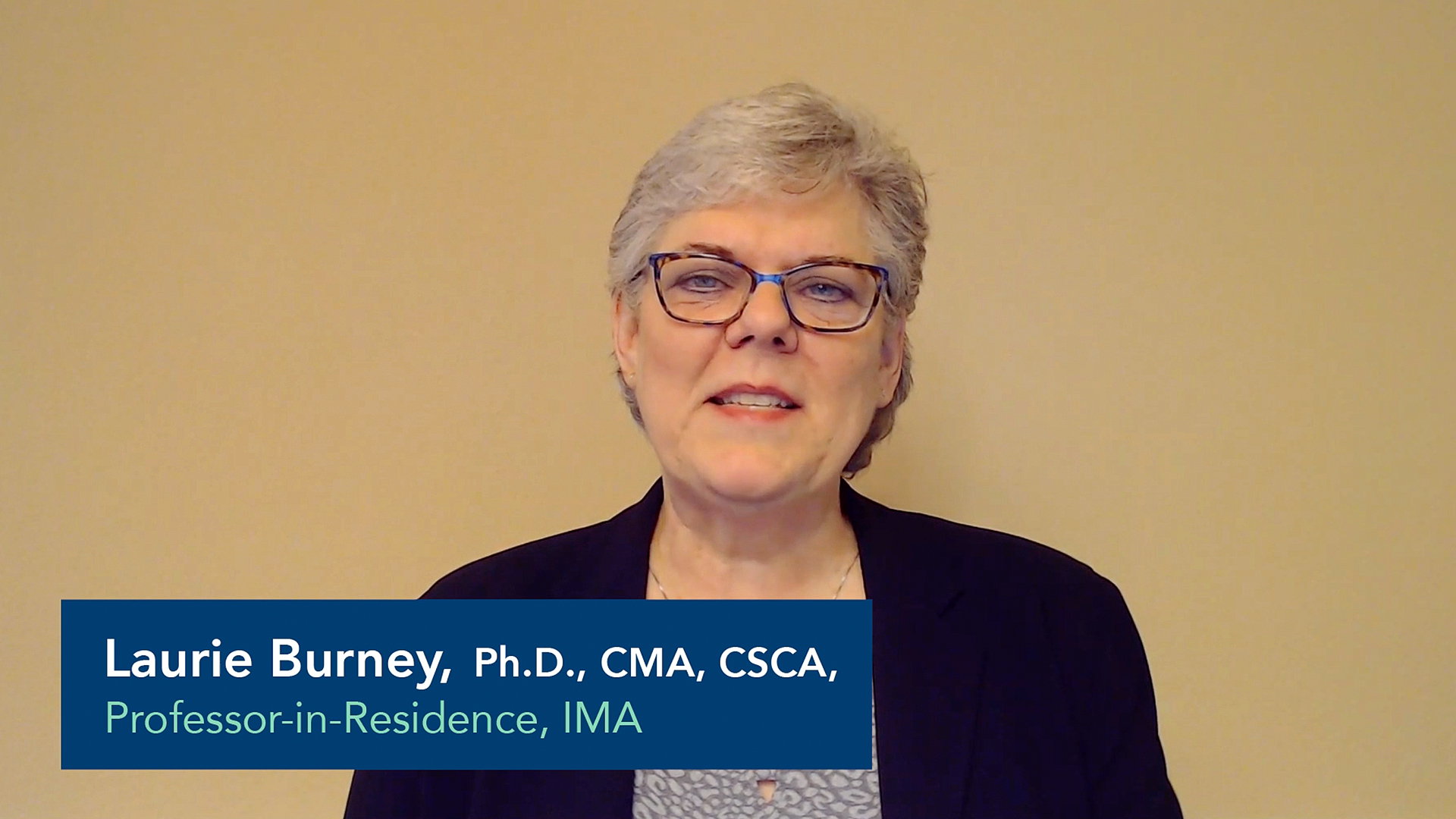
Are you ready to make your mark on the competition?
Register to compete in your region, middle east, ima student case competition winners.
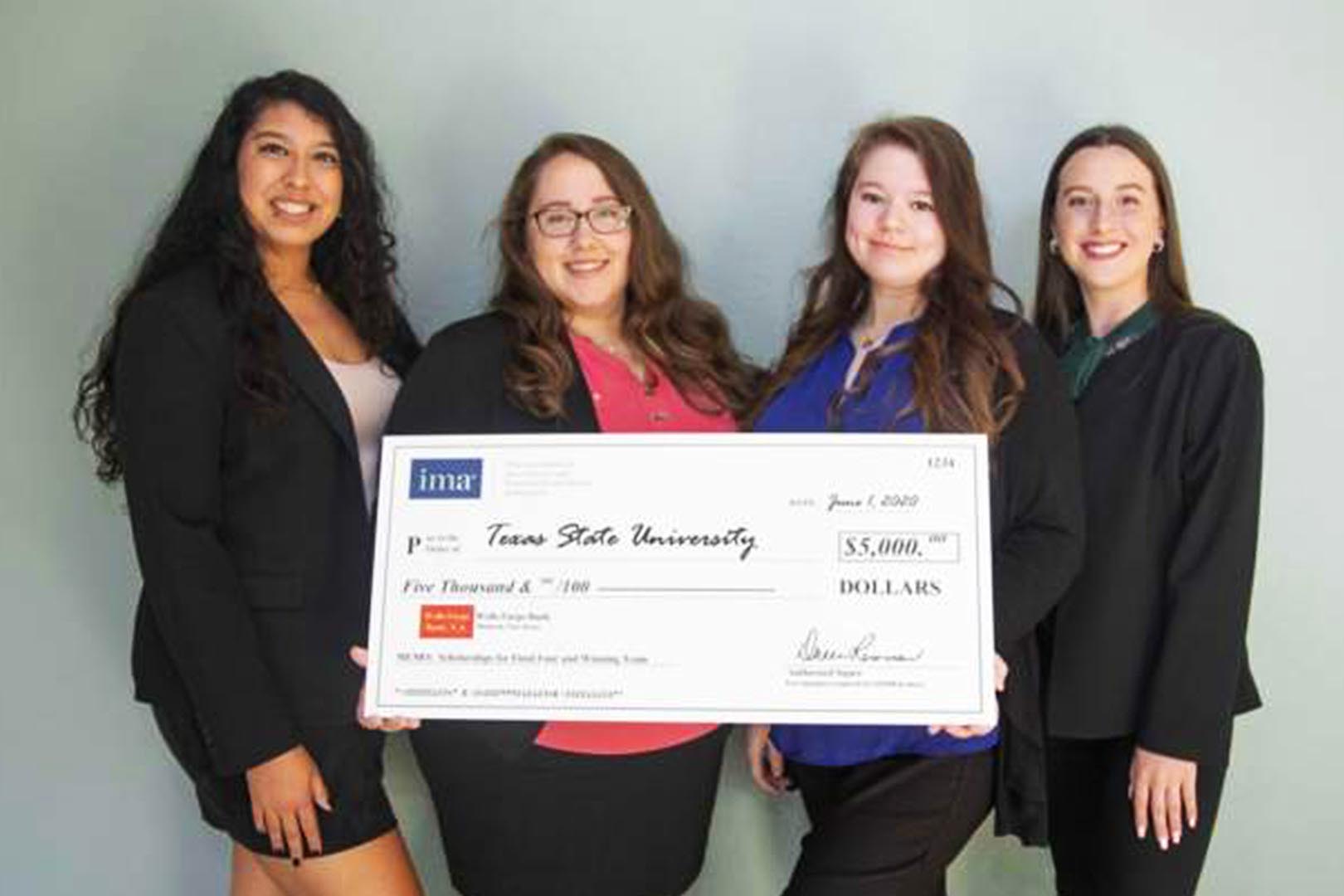
Title Sponsor

Copyright Footer Message
Lorem ipsum dolor sit amet
- Asia Pacific
- Global Americas
- Middle East/Africa
Google V. Competition Commission Of India – A Case Review
Contributor.
The Competition Commission of India (" CCI ") had on October 20, 2022, passed an order against Google LLC and Google India Private Limited (" Google ") directing Google to refrain from indulging in anti-competitive practices that were found to be in contravention of the provisions of the Competition Act, 2002 (" Competition Act ") and also imposed on Google a penalty to the tune of INR 1337.76 Crores.
Google filed an appeal with the National Company Law Appellate Tribunal (" NCLAT ") against CCI's order.
Google contended that CCI's order suffered from confirmation bias and that agreements executed with equipment manufacturers did not prevent them from pre-installing competing apps with similar functionality. Google further argued that its popularity was due to its effectiveness and that dominance in the market did not necessarily constitute abuse of dominance.
CCI, on the other hand, contended that Google controlled nearly 98% of the market in India for smartphone apps and was found to be violating competition laws to maintain its dominance in the market. CCI accused Google of unfair trade practices by restricting the entry of other applications in the Google Play Store. CCI summed up Google's policies in India in 5 phrases, namely "digital feudalism," "digital slavery," "technological captivity," "chokepoint capitalism," and "consumer exploitation."
CCI observed that by using its dominant position in the online search market, Google was denying access to competing search engines. It also noted that by making pre-installations of Google's proprietary apps mandatory in an android phone, the incentive and ability of device manufacturers to develop and sell devices operating on alternate versions of android was considerably reduced. Therefore, CCI directed Google to not force Original Equipment Manufacturers (" OEMs ") to pre-install a bouquet of applications, not offer any monetary or other incentives to OEMs for ensuring exclusivity for its search services, and not restrict the uninstallation of its pre-installed apps by the users.
After hearing arguments from both sides, the NCLAT, on March 29, 2023, upheld 1 CCI's decision and ruled that Google had perpetuated its dominant position in the online search market, resulting in the denial of market access to other competing search apps. The NCLAT, however, deleted certain directions of the CCI in paragraph nos. 617.3, 617.9, 617.10, and 617.7 of CCI's order. NCLAT upheld other directions given by CCI, including the imposition of a fine on Google to the tune of INR 1337.76 Crores.
This NCLAT ruling highlights the ongoing debate surrounding anti-competitive practices and market dominance in the technology industry. Google's dominance in the smartphone apps market in India and its control over the online search market were key factors in this case. The ruling serves as a reminder to tech giants that market dominance comes with a responsibility to operate fairly and to avoid engaging in anti-competitive practices that restrict competition and harm consumers. As the technology industry continues to evolve, it will be essential for companies to operate in a manner that fosters fair competition, innovation, and consumer protection.
1. Google LLC and Another v. Competition Commission of India Through its Secretary and Others , 2023 SCC OnLine NCLAT 147.
The content of this article is intended to provide a general guide to the subject matter. Specialist advice should be sought about your specific circumstances.

Antitrust/Competition Law
Mondaq uses cookies on this website. By using our website you agree to our use of cookies as set out in our Privacy Policy.
- The Chicago School
- Culture & Society
- The Digital Economy
- Economic History
- The Equitable Economy
- The Green Economy
- The Information Economy
- International Economics
- The Role of the State

Assessing India’s Ex-Ante Framework for Competition in Digital Markets

Vikas Kathuria
Vikas Kathuria is a professor at BML Munjal School of Law and heads the Centre on Law, Regulation and Technology (CLRT). He researches and writes on competition law and data governance. Vikas received his PhD from Tilburg University, in the Netherlands. His post-doc work at the Max Planck Institute for Innovation and Competition, Munich, explored the role of competition law and regulation in data-driven markets. Vikas has previously worked with the Competition Commission of India (CCI). His research papers have been featured in international peer-reviewed journals.
Popular This Week
Should every town and village have unfettered access to the municipal bond market, the proper role of economics in merger review: transcript, the political economy of right-wing populism in the united states, food for thought.
Vikas Kathuria evaluates India’s new ex-ante framework to regulate digital markets. He assesses its divergences from Europe’s archetypal Digital Markets Act and the characteristics of India’s political economy that explain these differences.
India, the world’s fifth-largest economy and third-largest economy in terms of digitalization, is on the path to adopting ex-ante rules to ensure competition in digital markets. Ex-ante rules seek to prevent anticompetitive harms from occurring through general guidelines rather than identify and punish them after they have already occurred (ex-post). The Committee on Digital Competition Law (CDCL), which was constituted by the Ministry of Corporate Affairs, presented in March its report recommending an ex-ante framework and also introduced the Draft Digital Competition Bill, 2024 (DCB).
The motivation behind the Bill
India enacted its first legislation to promote competition in markets in 1969. It introduced its modern competition law, which was driven by contemporary economic thought, in 2002. This created India’s competition regulator, the Competition Commission of India (CCI). However, the CCI only became functional in 2009 due to challenges to its constitutional validity.
The CCI barely got started before complex tech cases came its way. The case against Google for allegedly preferencing its own services was brought before the CCI in 2012 . Other cases alleging abuse of dominance against firms in e-commerce, ride-hailing, social media, app stores, and booking platforms soon followed. In all these cases, the CCI struggled to ensure competition with the ex-post tools. Either the firm was not “dominant” in the sense of traditional competition law, thus escaping the jurisdiction of the CCI. Or lengthy investigations and challenges to the CCI’s actions at various stages rendered impossible timely intervention in markets characterized by network effects, and thus prone to “ tipping ,” in which a company acquires a dominant and difficult-to-reverse position. The CCI realized its limitation and asked the government to add ex-ante tools to prevent similar obstacles to enforcement in the future.
Around the same time, the CCI’s market study on e-commerce revealed that the e-commerce sector was concentrated and experiencing opacity and anticompetitive practices. There were specific concerns regarding platform neutrality, unfair contractual terms, the presence of price parity clauses, exclusive contracts, and discount policies of platforms. The CCI could only recommend self-regulation to address such practices. The developments within India coincided with similar concerns on the digital economy in the EU and other jurisdictions. Several international expert reports underscored the limitations of competition law in ensuring contestability in the peculiar technological and economic context of digital markets.
One crucial factor that may have motivated the commission of the CDCL is the disadvantages that home-grown startups and businesses have faced due to the superior bargaining power of Big Tech platforms. Home-grown businesses and civil society have brought several cases before the CCI, including alleging self-preferencing in search , billing practices of app stores , and exclusive and preferential listing on e-commerce platforms .
The CDCL in its report, much like other international reports, has highlighted the systemic economic features that make digital markets prone to concentration and give undue power to large firms. Additionally, the CDCL noted, based on ongoing cases, the lengthy nature of competition proceedings that inhibit timely action to arrest “tipping” in digital markets. For these reasons, the CDCL has advocated an ex-ante framework in the form of the DCB.
The Draft Digital Competition Bill
The DCB proclaims “contestability, fairness and transparency” to be its objective. The enforcement candidates are “systemically significant digital enterprises” (SSDEs) that provide nine “core digital services,” which are services that are susceptible to concentration, such as search and advertising. The DCB is thus similar to the recent EU Digital Markets Act, which targets gatekeepers in the digital market that provide an array of identical services. The one notable difference is that the DCB does not list virtual assistants as a core digital service. The DCB also does not explain what an SSDE is, unlike the DMA, which sets out the characteristics of a “gatekeeper” in Article 3(1). However, going by the CDCL report, it is clear that the DCB refers to large digital undertakings that are important gateways for both business users and end users, suggesting SSDEs and gatekeepers will significantly overlap in identity.
An undertaking can be designated as an SSDE based on either a quantitative threshold or qualitative criteria. The quantitative criteria refer to local and global turnover, gross merchandise value, global market capitalization, and number of users. Even if an undertaking does not meet the quantitative criteria, it may still be designated as an SSDE based on a long list of qualitative criteria that reflects its bargaining power. Once designated as an SSDE, an undertaking is mandated to operate in a fair, non-discriminatory, and transparent manner with end users and business users. The activities that are prohibited for SSDE are self-preferencing, using or relying on non-public data of business users, restricting third-party applications, anti-steering, and tying and bundling. The CCI has been tasked to pronounce upon non-compliance that may result in a penalty. Notably, structural remedies are missing.
The DCB appears to be strongly inspired by the DMA so far as the substantive provisions are concerned. In places, however, one can identify the bargains that the drafters of the DCB encountered in the peculiar context of a developing country. At places, the drafters seem to balance between ensuring a level playing field while ensuring that investor confidence in Indian markets is not spooked. In other places, they seem wary of regulatory capture or have attempted to economize on already constrained government resources.
Fear of going overboard
Not all obligations featured in the DMA emanate from the ongoing cases before the EU Commission. Instead, the Commission sought to identify a range of potential harms to competition, even those not yet under scrutiny. This makes sense as once the economic features, most prominently economies of scale and network effects, have been identified as giving disproportionate powers to big firms to skew the rent distribution and affect contestability, policymakers do not have to wait to see the manifestation of this phenomenon in different forms in other cases.
One does not see this in DCB, however. For example, the DCB does not prohibit price parity clauses/most favoured nation (MFN) clauses . MFNs, both “narrow” and “wide,” have received criticism and prohibition from antitrust agencies in the EU. Likewise, compared to the DMA, there are no provisions to enhance advertising transparency and mandate interoperability. In the DCB there is no obligation for firms to inform about concentration. Once again, while the DMA reserves structural remedies for exceptional cases of systematic non-compliance, the Indian DCB has no provision for the same.
Saving Regulatory resources and fear of capture
The DCB has no provision for regulatory dialogue with the SSDEs. In the peculiar context of an ex-ante framework, participative regulation has become a necessity and has been adopted by the EU. This allows the European regulator to work with gatekeepers to identify harms, mitigate them, and fine-tune DMA obligations. The DCB, however, places misplaced reliance on the CCI to unilaterally craft compliance requirements for CDSs. The DCB attempts to be precise by stating that differential obligations may be crafted for different SSDEs providing the same core digital service based on the nature of the market, the number of users in India, and such other factors that the Commission may deem fit. This is not enough, however. For instance, the design of the choice screen is an obligation that may be complied with in different ways. Which way is more efficient? While the CCI may recommend optimal ways to arrest self-preferencing, it may not account for consumer preferences. Regulatory dialogue between regulators and SSDEs is important to avoiding these missteps. And if a regulatory dialogue were not to bring about satisfactory results, the regulator could always start non-compliance investigations.
The EU Commission has organized compliance workshops where gatekeepers present their solutions and stakeholders present their views. This helped the Commission to decide that certain compliance measures failed to follow the objective of the DMA. For example, some stakeholders complained regarding Apple’s and Alphabet’s fee structures. Some also pointed to shortcomings of Apple’s compliance solutions by referring to the poor choice screen design, burdensome process for changing defaults, and inability of end users to uninstall several of Apple’s key apps. These will be amendments and revisions that the DCB misses.
The DMA accords an undertaking that meets the quantitative thresholds a right to rebut the presumption in exceptional cases. The DCB, even though it accords an opportunity of being heard to the enterprise, does not give a full-fledged right to show that even after meeting the thresholds the enterprise is not a SSDE gatekeeper. Notably, the DCB does not have a similar provision to Article 3 (1) of the DMA where the characteristics of a SSDE/gatekeeper are set out. Arguably, therefore, a right to be heard in the DCB is only limited to contesting the information that the CCI employs in the designation process. This is a limited right and does not allow for accommodating exceptional cases.
The omissions could be for two reasons. First, the Committee could be wary of regulatory capture ; second, it was mindful that regular interactions with regulatees might constrain the already limited resources. In the context of an emerging market, both these reasons acquire amplified importance.
The fear of capture is manifested elsewhere as well where the drafters have attempted to limit the interactions with the regulatee. The drafters have put the onus on the CCI, while crafting regulations, to account for (a) economic viability of operations; (b) prevention of fraud; (c) cybersecurity; (d) prevention of unlawful infringement of pre-existing intellectual property rights; (e) requirement of any other law in force; and (f) such other factors as may be prescribed. It is evident that this information is specific to undertakings and hence they are best placed to assist the regulator in crafting appropriate obligations. In contrast, Article 9 of the DMA puts the onus, and rightly so, on gatekeepers to demonstrate that compliance would endanger economic viability.
A Hidden Weapon
Along with fairness and contestability, an additional objective of the DCB is “transparency.” The CDCL report does not elaborate upon this concept. For a concept such as fairness, vagueness is not problematic as Chapter III obligations (except Section 10) are rule-based obligations. In this case, the DCB adumbrates what violates fair practices. However, Section 10 states that an SSDE shall operate in a fair, non-discriminatory, and transparent manner with end users and business users. Unlike other obligations featured in the DCB, this provision is not made concrete in rules or further direction, leaving it broad and vague. In theory, this principle leaves enormous scope for the CCI to cast several obligations regarding transparency on an SSDE, such as ensuring objective ranking, charging equitable and non-discriminatory onboarding fees, restricting unfair contractual terms, objectivity in deplatforming etc.
Recommendations
The DCB is a brave step in the right direction. However, its efficacy can be improved by adopting a few measures. First, the DCB should incorporate additional obligations for SSDEs, such as those regarding interoperability and prohibitions on MFNs. Another crucial addition is regulatory dialogue, which is a mandatory tool to ensure optimal compliance. In addition, while it may appear resource-intensive prima facie, regulatory dialogue is a cheaper safety net when compared to a larger number of non-compliance investigations at a later stage. The possibility of capture can be mitigated by publishing the non-confidential reports of engagement. The DCB must include structural remedies as well for exceptional cases. These changes will indeed require more resources at the CCI. There is no alternative, however, to increasing resources if the Indian government is serious about ensuring fairness, contestability and transparency in the digital markets.
Articles represent the opinions of their writers, not necessarily those of the University of Chicago, the Booth School of Business, or its faculty.
Related posts:
- European Digital Platform Regulation Risks Undermining Itself with Over-Centralization
- The Digital Markets Act Is More Intricate Than Regulators and Detractors Give It Credit For
- The Revised US Merger Guidelines Adopt the Future Markets Model
- Brazil’s CADE Demonstrates How Antitrust Authorities Can Pursue Sustainability Goals
- antitrust and competition
- Digital Markets Act
- India Digital Competition Bill
LATEST NEWS
The role of economics in judicial review, dinner keynote with jonathan kanter and lina khan: transcript, the battle for the eu’s economic soul excludes european voters, banking consolidation raises the costs for local governments to issue new debt, ideological capture, the political economy of populism in the united kingdom.

The publication of the Stigler Center at The University of Chicago Booth School of Business ProMarket is dedicated to discussing how competition tends to be subverted by special interests. The posts represent the opinions of their writers, not necessarily those of the University of Chicago, the Booth School of Business, or its faculty. For more information, please visit ProMarket Policy .

IMAGES
VIDEO
COMMENTS
Titan Elevate. Another chance for you to participate in a widely respected group like the TATA group. Titan is one of the most successful brands of the TATA group, places Elevate among the best case study competition in India. Rewards. Cash Prize of INR 1 lakh and live project opportunity for winners.
With the endeavour to expand Case Challenge to students across India, we have introduced wild card entrants this year. In this, students from business schools across India can register and participate in the first round (Online Challenge) subject to the rules and requirements of the Competition. ... 2021 have to opt for the case studies they ...
2021. Year 2021, was a challenging year as ICC was conducted in an online mode with all its grandeur. ... ICC is arguably one of the best case study competitions in India. ... IIT Kharagpur, is India's Largest Business Case Competition. The 12th Edition of the ICC is brought to you in association with Kshitij, IIT Kharagpur.
COMPETITION DATE - 30TH & 31ST MARCH, 2021 OVERVIEW AIMA- India Case Research Centre (ICRC) is pleased to announce the 1st edition of Case Writing ... ABOUT THE CASE STUDY COMPETITION AIMA, the apex body of management in India, organises several summits and competitions every year. The Case Writing Competition (CWC) is a refreshing ...
The Indian Case Challenge hosted annually by Business Club, IIT Kharagpur, is India's Largest Business Case Competition. The 10th Edition of the ICC is brought to you in association with Kshitij, Asia's largest Techno-Management fest. ICC 2022 has prizes worth more than 1.5 Lakhs at stake. With the previous edition of ICC witnessing over ...
In case properly developed, agro and food processing sector can make India a major player at the global level for marketing and supply of processed food, feed and a wide range of other plant and animal products. For the year 2021 therefore, the Sitaram Rao Livelihoods India Case Study Competition
About The Case Study Contest The Case Study Competition is a refreshing, stimulating and dynamic contest, through which teams coming from ... The submitted case studies can be published at AIMA India Case Research Centre ( ICRC). ICRC offers an option to ... 2021 • The Case study presentations will be made through Video Conferencing as per ...
The Preliminary Round for the Indian Case Challenge 2021 will begin from 8:00 PM, 15th December 2020 till 5:00 PM, 1st January 2021. The teams will receive a mail comprising of the details and instructions of the competition as well as the Pre-Case once they register. Start Date 15 Dec 20, 02:30 PM CUT.
In this edition of the Case Study Competition, you can choose to present the solution to any of the following 5 cases: The arrival of Autonomous Vehicles in India; CoviSpatial, Geolocation and the Pandemic; Damage Assessment of RC Deck slab; Demolition Management; Water-Food-Energy Nexus; Visit the website for the Problem Statements.
AIMA-ICRC Case Writing Competition, March 2021. AIMA- India Case Research Centre (ICRC) is pleased to announce the 1st edition of Case Writing Competition (ICRC -CWC). This competition aims to encourage and promote the development of high-quality India focused teaching case material that brings Indian ethos in managing the business. The ...
The National Case Study competition presented by ICG, Powered by Tads Education is one of the most upcoming case study competitions. We aim to bring together students of all courses throughout India and Nepal and offer them fantastic opportunities: to meet like minded students, leading schools and renowned guests. For the First edition of the competition, all participants will have the ...
Aakaar, IIT Bombay is proud to launch the " Case Study Competition 2021 ". Case studies provide an effective platform to educate tomorrow's civil engineers with expertise and accomplish a desired aim of practice engineering. This offers good opportunities and a new source of interest to the students by creating a learning environment ...
Welcome to the P&G CEO Challenge 2021-2022. The P&G CEO Challenge is a one-of-its-kind Case Study Challenge that is designed to test your problem-solving skills while dealing with critical business situations. The CEO Challenge cases are designed to give you a flavour of the everyday business decisions you will get to take as the Leader of a ...
Before GLOBAL we held a case competition for the students at CBS under the name OPEN. The OPEN case was the same as the Invitational case. In 2020 we introduced a new concept consisting of an opening case where the best teams are seeded for the final case. ... 2023: Vestas. 1st, 2nd, 3rd. 2022: Matas 1st, 2nd, 3rd. 2021: ...
The top three teams from each campus will receive a pre-placement interview for MBA roles at Amazon. On Sep 10th 2021, the ACE 2021 Finale jury comprising Puneesh Kumar, Sandeep Thangiah, Suman Yadav, VG Sundar and Sumit Saxena identified national winners who will receive cash awards worth INR 2,00,000. The first-runner-up will receive cash ...
A $150 Amazon gift voucher will be awarded to each team member. Connection with a mentor in a local chapter. Click here to submit your case on or before January 31, 2020. Read the Case Competition Terms and Conditions here. Submission Deadline: January 31, 2021.
The purpose of setting up of India case research centre at AIMA is primarily to focus on developing and publishing Industry based India-focused research cases. ... Case Competition 2021; Case Competition 2022; Case Competition 2023; Case Competition 2024; New Arrival ... A CASE STUDY ON THE ROLE OF AI/ML I... Information Technology. A CASE ...
These six teams competed in the semi-finals, the national round, and the IIM Indore team won the nationals. After that, the team represented India in the finals in Dubai. The case was based on a Singapore-based indoor sports & recreational facility named Cage. The case revolved around improving the efficiency & profitability of the venture.
Student Case Winners 2020-2021. Student Case Winners 2006-2019. Rising Star Award. Rising Star Winners. Volunteer Opportunities. Jobs and Schools. Schools and Programs. ... The Case Study Competition requires teams to work through a complex case study in four hours. Teams receive a real-world challenge, develop a creative, practical solution ...
Art and science of Writing case studies on developing technologies 20 Oct 2023, Online . Faculty Development Programme on Case Teaching & Case Writing in Hybrid Mode ... AIMA-ICRC Case Writing Competition, March 2021 30 Mar 2021, Online . AIMA & AICTE Present Case Teaching & Writing Online Workshop (With a focus on developing Cases based on ...
Fifty four percent of raw case users came from outside the U.S.. The Yale School of Management (SOM) case study directory pages received over 160K page views from 177 countries with approximately a third originating in India followed by the U.S. and the Philippines. Twenty-six of the cases in the list are raw cases.
This is your opportunity to showcase your business acumen, present in front of leading business professionals, and win prestigious awards and other great prizes. The competition is open to teams of 3-5 students from the same college or university. Multiple teams may enter from each school. Each team must have a faculty advisor. IMA will select ...
The Competition Commission of India ("CCI") had on October 20, 2022, passed an order against Google LLC and Google India Private Limited ("Google") directing Google to refrain from indulging in anti-competitive practices that were found to be in contravention of the provisions of the Competition Act, 2002 ("Competition Act") and also imposed on Google a penalty to the tune of INR 1337.76 Crores.
CSK, MI, RR and even RCB seemed better teams on paper. How KKR turned the tables not only on them, but also the other surprise package of the season, SRH, is a case study in astute planning and precise execution. My Kolkata analyses how KKR scripted its fairytale IPL season. Smells like team spirit
The Committee on Digital Competition Law (CDCL), which was constituted by the Ministry of Corporate Affairs, presented in March its report recommending an ex-ante framework and also introduced the Draft Digital Competition Bill, 2024 (DCB). The motivation behind the Bill. India enacted its first legislation to promote competition in markets in ...